- About Sailonline

The One Source For Yacht Charters And Charter Yacht Ownership

- What is boat chartering
- Choose your best charter type
- Choose your charter company
- Choose a cruising area
- Choose the right boat
- Booking your charter
- Your sailing resume
- Yacht Charter Destinations Chart
- Catamarans vs. monohulls
- Bareboat Destination Skills
- Sailing Area Table
- Caribbean weather info
- What to pack for your charter
- Charter boat checklist
- Internet access on charter
- Briefing your charter crew
- Saving money on charter
- All boat charter tips in 1 file
- Budget Charter Fleets
- Provisioning a charter boat
- Booking directly with a boat owner
- The charter days you really get
- Managing your boat on charter
- Boat charter with kids
- Seasickness tips
- Starting a charter from the USVI
- If you damage a charter boat
- Flotilla charters
- Charter with a handicapped child
- Crewed yacht charter myths
- Organize a crewed charter
- Crewed charter tips
- Browse The Database
- Submit your Boat Listing
- Yacht Management Contract
- Buying a boat with a partner
- Bareboat vs. crewed yacht
- Charter Yacht Phase-out
- Phase-out punch list
- Yacht & Marine Surveyors
- Charter Boat Owners forum
- Yacht financial management tools
- 2nd tier fleets financial comparo
- Active ownership FAQ
- Layman guide to charter boat ownership
- Is Buying A Charter Boat For You?
- Buying a used charter boat
- Yacht buyer representation
- Bareboat vs. crewed yacht ownership
- Active Yacht Ownership
- Customers' Testimonials
- Cruising Logs
- Captain licenses
- 'Heaving to' maneuver: A must
- Charter Boat Seamanship Manual
- Yacht Crew Certification: All answers
- Snorkeling & kayaking safely
- Rules of the Road
- MOB Crash-Stop Maneuver
- 5 Knots you must know
- Flag Etiquette
- Emergencies on charter
- Distress calls at sea
- Navigation on a yacht charter
- Navigation aids sheets
- Estimate distances at sea
- Heavy weather basics
- Caribbean weather information
- VHF use: The basics
- Raising Main Sail | UnPC
- Anchoring technique & hand signals
- Catamaran sailing tips
- Docking: Avoid the embarrassment!
- Mooring technique
- Med-mooring technique
- Dinghy handling: make the best of it!
- Reefing a Catamaran
Remember Me
- Forgot your password?
- Forgot your username?
- Create an account
Yacht Crew Licenses & Certifications: Q & A

Captain Mark Fry, of International Yacht Training , answers your questions.
Q : How does one substantiate the requirement of actual cruising time as a qualification for the "6 Pak" license? I have been boating for at least the last 15 years and have substantial hours, however I never maintained a log. I am afraid that this requirement has and will keep guys like me from going for their licenses. Thanks, Dick B.
A : To substantiate sea time for the US Coastguard "6 pack" license on your own vessel, you are required to complete the "small vessel service form" from the USCG. As the owner of the yacht you can sign off your own sea time and have it notorised from someone who can substantiate it such as a dock master, yacht club commodore or such like. If you are not the owner of the boat(s) where you have done your sea time, you must, unfortunately, have each individual boat owner sign each form; then each form must be notarized. Needless to say, this can be a very difficult and tedious task.
____________________________
Q : I am interested in starting a crewed charter business either based in BVI or AVI 1) Is their any captain licence that covers both or do I need two Licences? I am currently located in Newark, DE. USA. 2) Do you have any sugestions for me as far as schools or study guide courses? 3) I have plenty of sea time but mostly on smaller yachets. How can I gain my tonnage ratings for large sailing vessels 100 - 200 Ton Master? David M.
A : It is very interesting that you have brought up this question at this time. The British Virgin Islands passed a law on Feb 1st 2005, that any vessel chartering in their waters must have a qualified Captain on board with a qualification recognised by the BVI. Here at IYT, we issue dual certification for American citizens. That is a 200 Ton Yachtmaster Offshore certificate and a USCG 200 Ton Masters license. This helps satisfy both administrations so you can work in both the BVI and the USVI. IYT holds the dual Yachtmaster course once a month in our Ft Lauderdale facility. Details of entry level requirements, course schedule and pricing can be found on our website.
Q : Is it true that boat insurance goes up dramatically when one obtains a Captains License? We have heard this, but would think that the opposite should be true - that a licensed captain should be a lower risk. Rebecca V.
A : You are absolutely correct, there are a number of companies that will give you a reduction in your boat insurance if you hold a Captain license or a recognized certificate of competency. But like car insurance, you should shop around for the best deal.
Q: How do I get an International Certificate of Competency (ICC) to charter in Spain? William C.
Here at IYT in Ft Lauderdale, we are licensed to issue ICC's on behalf of both the U.K. and the Irish Governments. Generally speaking however, you must be a resident of one of these countries in order to obtain an ICC. We are trying to find out how we can issue ICC's on behalf of the US Coastguards but so far have been unable to get a satisfactory reply. We have also requested permission from the Irish Government to issue ICC's to non-Irish residents and are currently awaiting a reply. If we get permission to issue ICC's in the US from the Irish Government, then as part of the EU this certificate will be good to charter anywhere in Europe. You will be able to obtain this certificate here is the USA. As soon as we get an answer we will update you.
Q : I'm a bit confused...."Yachtmaster" is a registered Trade Mark of the UK's Royal Yachting Association. Your website doesnt even mention the RYA and you seem to have no affiliation with it!! As a long term holder of RYA certification, I would not like to see my qualifications degraded or indeed the Yachtmaster Offshore or Ocean tickets confused with anything other than the "real thing"! Tony N-W
A - Hi Tony, International Yachtmaster Training ( IYT ) is a U.S. Corporation and has absolutely nothing to do with the British recreational yachting organisation called the Royal Yachting Association or RYA. This is why there is no mention of it on our website. The term "Yachtmaster" actually belongs to the British Maritime and Coastguard Agency (MCA) who were the first to coin the phrase and issue yachtmaster certificates as the Board of Trade as far back as 1932. In 1973, RYA were given permission to issue "Yachtmaster " certificates by the MCA. In 1999, International Yachtmaster Training was also given permission by the MCA to issue "MCA Recognised Yachtmaster certificates. Yachtmaster certificates are also issued by the Australian Yachting Federation, the Irish Sailing Association, the Cruising Association of South Africa and the Canadian Yachting Association although their certificates are not recognised by the MCA. All of these organisations are recreational yachting associations run by recreational yachtsmen and they issue recreational yachtmaster certificates. Some of these organisations issue yachtmaster certificates with a "commercial endorsement", and certain administrations question the authority of recreational yachting organisations to issue "commercial" certificates.
International Yachtmaster Training on the other hand, is a professional yachting organisation, fully approved by Det Norske Veritas as a Maritime Training Center of Excellence. It is run by professional yachtsmen and we issue professional, commercial Yachtmaster certificates. Our standards are higher than the other organisations including the RYA, as they are fully compliant with the International Maritime Organisation rules for the Standards of Training and Certification of Watchkeepers, or STCW as it is commonly known. IYT does not allow "direct entry" into its examination system as the RYA do, one has to actually sit our courses to obtain our certification. All of our examiners worldwide are professional mariners, not so with the RYA.
The IYT Yachtmaster program is so successful, it is now recognized by 24 Governments worldwide including not only the MCA but also the U.S. Coastguard among others. The demand for our certification as a standard of excellence is such that we now have 33 licensed schools in 20 different countries and this is growing every week. With regard to the RYA registered trademark in the U.K., it is interesting to note that the MCA, who coined the phrase, refuse to recognise the RYA registration. The "International Yachtmaster Training" name and logo, is however a federally registered trademark in the United States.
In conclusion, the IYT Yachtmaster Certificates have become the certificates of choice throughout both the professional international yachting community and recreational yachtsmen. Their compliance with the STCW convention for Basic Safety Training and insistence on completion of all aspects of the training courses ensures a well qualified individual trained to professional international standards. So Tony, when you are ready for the "real thing", contact us, you will be pleasantly surprised.
Q - I keep my boat in Belize. We plan to cruise the Caribbean in a few years (live aboard). Is there any good reason to get my 6-pack license in this case? Mark P.
A - The U.S. is the only country in the world that issues a "license" to drive a boat. All other countries issue a "certificate of competency" which includes a practical examination to prove that you are competent to command a boat. There is no reason to get your six-pack license unless you intend to operate your boat as a commercial charter boat in the US Virgin Islands. The Coast Guard License is only a requirement is you wish to carry passengers for hire or reward in the U.S. or U.S. territories. It consists of a series of multiple choice questions. It is also largely unaccepted overseas as there is no practical component to the training and no "on the water" examination. The most internationally recognised qualification for yachting is the IYT Yachtmaster certificate which also carries a reduction in your insurance if you hold such a certificate.
Q - I intend to operate a charter boat on the USVI. I heard that the USVI have special regulations, different from the USA. What kind of license is needed in those islands? Does the boat have to be US flagged? Knowing that I will be based from the USVI, am I allowed to do charterers pick ups in the BVI? Thank you very much. Joe S.
A - If you are going to be chartering in the USVI, you need to be qualified to US Coastguard standards. This would mean a "Six-Pack" license or similar to take paying passengers aboard your vessel. It is always in the best interests of your qualifications to complete the 5 day Basic STCW training courses (not the 3-day version), which will be acceptable to the BVI. With regard to where you flag the vessel, the best people to talk to are the US Virgin Islands Charter League. You can contact Pamela Wilson at 1.800.524.2061. With regards to being able to pick up charterers in the British Virgin Islands, there have been some changes recently so I would suggest you contact the British Virgin Islands Maritime Authorities for their most recent update.
Q - As a professional skipper, I have been asked several times if I could perform a wedding on my boat, which is based in US waters. If I do, can I deliver a valid wedding license? What is the real validity of this whole thing and how does it REALLY work? Or is it just a gimmick? Please elaborate since it could be an interesting marketing tool for my business. Sincerely, Capt. Gene
A - It was once possible for a ship Captain to marry people at sea. However, this is no longer the case. There are extreme cases where a couple could be married in dire circumstances such as a sinking vessel or someone about to die. But this could only be done in International waters. It is however possible to marry someone on your boat inside territorial waters (3 miles ) provided the person giving the ceremony is duly qualified to do so by the State, such as a public notary. I was married aboard a yacht 7 years ago here in Ft Lauderdale. I would suggest contacting the State authorities to find out how this could be done, it is rather good fun to do so.
Q - I am starting a Skippered Yacht Charter business in St. Vincent & the Grenadines later this year and I see a lot of comments about the "6-pak" license requirements. I am qualified to RYA Yachtmaster Offshore. Do I need any further qualifications (over the YM) to operate the business in SVG ? Graham
A - The "six-pack" license that you refer to is a U.S. Coastguard license which is required for operating vessels that carry up to six people in U.S Territorial waters. This includes the United States mainland and the U.S. Virgin Islands. It can only be taken by U.S Citizens and will be of little or no value to you in St Vincent and Grenadines.
Q - What are the qualifications needed by the different Caribbean countries to run a crewed charter yacht?
A - This is a matter for the Flag State Authority or Maritime Authority on each Island. The problem is there are many different countries involved. There are U.S. British, Dutch, French, Bahamas and all the independent islands who make their own decisions on what qualifications are acceptable for which yachts.
The qualifications will depend on the status of the yacht, whether it is private or commercial (this means engaged in trade or accepting money for a charter), the Flag State or where the yacht is registered, the tonnage of the yacht, whether it complies with a classification society for safety and construction, the number of guests it will carry, whether it is power or sail, its compliance with the code of safe working practices and sometimes the nationality of the crew and / or the number of crew it will carry.
There is also the issue of work permits from the various islands. For instance, one might be suitably qualified to run a charter yacht out of the British Virgin Islands but without a Work Permit from the V.I. Government to do so, it could mean big trouble. The same applies from the U.S. Virgin Islands.
A lot of people think that they can buy a yacht and suddenly start a charter business in the Caribbean. Having spent 6 years running commercial yachts throughout all the islands, I would strongly recommend conducting some research before embarking on such a venture.
Lastly, with regard to RYA Yachtmaster certificates, I would caution that a number of Flag States (including the French Islands) will not accept the RYA Yachtmaster certificates even with a commercial endorsement as they do not believe that a recreational sailing organisation with no quality management system and no auditing requirements in place should have the authority to issue commercial certificates. They also do not comply with the STCW convention as laid down by the International Maritime Organisation.
Before deciding to run a commercial yacht in the Caribbean, I would strongly suggest contacting the Government of the Island to find out as many rules and regulations as possible. The number of yachts doing so is strictly governed, otherwise there would be a "free for all" with no controls in place.
Q - I have limited (almost none) sailing experience. I would love to bareboat charter. How much experience is needed before a bareboat charter company will turn the boat over to you. Were do you get experience? I know a course would be in order but if I go to the expense of a course that leads to a bareboat certification is that enough?
Depending on where you live, approach a reputable sailing school (there is no other way to do this). I recommend Offshore Sailing School ( http://www.offshore-sailing.com ). They have many outlets all around the country. Or any Certified ASA school.
Q - A quetion about lowering flag from a yacht club yard arm has arisen here in Marblehead, MA. Specifically, the Canadian flag was flown from the yardarm before and during the Marblehead-to-Halifax ocean race recently. Clearly, the U.S. ensign is the last to be lowered ceremoniously, as you say. But which of the other two that flew should be lowered first, the Canadian flag or the yacht club's burgee? Bud P.
A - The flags should be lowered as follows 1) Club burgee first 2) Canadian flag second 3) US Flag last
Q - I understand that with a US flagged vessel I could operate a charter vessel outside US territorial waters without the need of the "six-pack" license, am I correct? And in the event the charter is based in one of the "non US" Caribbean Islands, is it the authority of the starting island of the charter that gives permission to Charter or do I need a permit from every other "island country" on the way, if it is different than the one at the start of the charter??
A - To run a charter yacht, you are required to comply with Flag State regulations irrespective of where in the world you operate. To operate a US flagged yacht, you would need to be US Coastguard qualified such as a 50 ton or "6 pack". Other islands have the authority to confine a charter boat to harbor if the Captain is not properly licensed. I would also doubt very much if an insurance company would insure you to operate a charter yacht without the proper license as the insurance would probably be void if there was an accident.
- PREMIUM FILES
- Pre-Owned Yachts
- Charter Boat Owners/Buyers Forum
- Favorite Links
Most read articles
- Boat flag etiquette
- VHF Radio Basics
- Catamarans - Monohulls: Pros and Cons
- Charter Boat Ownership for Dummies
- Charter Boat Owners Group
Copyright ©2000 - 2022 Sailonline.com. Unauthorized reproduction prohibited. Sailonline is not affiliated with any charter company.

All guides , Deckhand , Stewardess , Yacht Jobs
How to become a yachtie.
- November 1, 2023
“Ahoy there, future yachties! Are you ready to embark on an exciting and luxurious career on the high seas?” If the idea of working on a yacht, traveling to exotic locations, and catering to the needs of the rich and famous sounds like a dream come true, then you’re in the right place. In this comprehensive guide, we’ll explore the ins and outs of the yachting industry, from the essential skills and certifications needed to make a splash, to tips on building a strong resume and making valuable connections in the yachting world. We’ll also discuss the various career paths available, from starting out as a deckhand to eventually taking the helm as a captain. Finally, we’ll delve into the yachtie lifestyle, and how to strike the perfect balance between work and play while living and working on the world’s most luxurious vessels. So grab your deck shoes and let’s set sail on this exciting journey to becoming a yachtie!

1. Discovering the Yachting Industry: Opportunities and Requirements
The yachting industry offers a wide range of career opportunities for those who are passionate about the sea and luxury vessels. From deckhands and engineers to chefs and stewardesses, there is a position for every skill set and interest. To begin your journey in this exciting field, it is essential to understand the requirements and qualifications needed for each role. This will help you determine which path is best suited for your skills and aspirations.
Before diving into the world of yachting, it is crucial to familiarize yourself with the certifications and training necessary for your desired position. For example, aspiring deckhands should obtain their STCW (Standards of Training, Certification, and Watchkeeping) certification, while engineers may need to complete an MCA (Maritime and Coastguard Agency) approved course. Additionally, it is essential to have a valid passport, a seafarer’s medical certificate, and potentially a visa, depending on the country you plan to work in.
Once you have acquired the necessary qualifications, it is time to start networking and job hunting . Many yachties find their first job through word-of-mouth or by connecting with others in the industry. Attending boat shows, yachting events, and joining online forums can help you make valuable connections and learn about job openings. Furthermore, registering with a reputable yacht crew agency can increase your chances of finding the perfect position. Remember to create a professional CV and be prepared for interviews, as competition in the yachting industry can be fierce.
2. Essential Skills and Certifications for Aspiring Yachties
Entering the world of yachting requires a unique set of skills and qualifications, which are essential for ensuring a successful career. Obtaining the necessary certifications is a crucial step in becoming a yachtie, as these credentials demonstrate your competence and commitment to the industry. Some of the most important certifications include the STCW (Standards of Training, Certification, and Watchkeeping) Basic Safety Training, which covers essential safety and survival skills, and the ENG1 Medical Certificate, which confirms your fitness to work at sea.
Aside from certifications, aspiring yachties should also focus on developing their soft skills and practical abilities . Excellent communication, teamwork, and problem-solving skills are highly valued in the yachting industry, as crew members must work closely together to ensure smooth operations and guest satisfaction. Additionally, proficiency in various tasks such as cooking, cleaning, and maintenance is crucial, as yachties are often expected to perform a wide range of duties on board. By honing these skills and obtaining the necessary certifications, you will be well on your way to a rewarding career as a yachtie.
3. Building a Strong Resume: Tips for Landing Your First Yacht Job
As a newcomer to the yachting industry, it’s essential to create a compelling resume that showcases your skills, experience, and passion for the job. Start by highlighting any relevant experience you may have, such as working in hospitality, customer service, or a related field. If you have any certifications or licenses, be sure to include them as well. When crafting your resume, consider the following tips:
- Keep it concise: Aim for a one-page resume that’s easy to read and understand.
- Use a professional format: Choose a clean, modern design that highlights your most relevant information.
- Include a personal statement: Write a brief introduction that explains your interest in the yachting industry and what makes you a great candidate for the job.
Networking is a crucial aspect of landing your first yacht job, so attend industry events and connect with professionals in the field. This can help you learn about job opportunities, gain valuable insights, and make a lasting impression on potential employers. Additionally, consider joining online forums and social media groups dedicated to yachting to expand your network and stay informed about the latest industry news.
Finally, be persistent and proactive in your job search. Apply to multiple positions, even if they’re not your ideal role, as this can help you gain experience and make connections within the industry. Don’t be discouraged by rejection – it’s a natural part of the job search process. Instead, use it as an opportunity to learn and improve your resume and interview skills. With determination and a strong resume, you’ll be well on your way to becoming a successful yachtie.
4. Networking in the Yachting World: Making Connections that Matter
Establishing a strong network is crucial for success in the yachting industry. Building relationships with fellow yachties, captains, and industry professionals can open doors to new opportunities and help you advance in your career. Attend industry events, such as boat shows and yacht crew meetups, to meet like-minded individuals and expand your network. Don’t be afraid to introduce yourself and engage in conversations, as this can lead to valuable connections and potential job offers.
Utilizing social media platforms is another effective way to network in the yachting world. Join Facebook groups, follow industry influencers on Instagram, and connect with professionals on LinkedIn to stay informed about the latest news and job openings. Be active in these online communities by sharing your experiences, asking questions, and offering advice. This will not only help you learn from others but also showcase your expertise and passion for the industry.
Finally, consider creating a checklist to track your networking efforts and ensure you’re making the most of every opportunity. This can include goals such as attending a certain number of events per month, connecting with a specific number of professionals online, or following up with contacts you’ve made. By setting measurable objectives and regularly reviewing your progress, you’ll be well on your way to building a powerful network in the yachting world.
5. Climbing the Yachtie Career Ladder: From Deckhand to Captain
Embarking on a career in the yachting industry can be both rewarding and challenging. One of the key aspects to success is understanding the various roles on a yacht and how to progress from one position to another. Starting as a deckhand , you will gain valuable experience and skills that will serve as the foundation for your future growth in the industry. As you continue to learn and develop your abilities, you will have the opportunity to advance to higher positions, such as mate, engineer, or even captain.
One of the most important factors in climbing the yachtie career ladder is gaining relevant qualifications and certifications . For example, obtaining your STCW (Standards of Training, Certification, and Watchkeeping) certificate is essential for working on any yacht. Additionally, pursuing specialized training in areas such as navigation, engineering, or hospitality can significantly increase your chances of securing a higher position on a yacht. It is also crucial to network within the industry, as many job opportunities are found through personal connections and recommendations.
Lastly, developing a strong work ethic and demonstrating professionalism at all times will set you apart from other crew members. This includes being punctual, maintaining a positive attitude, and taking pride in your work. As you continue to excel in your role and gain the trust of your captain and fellow crew members, you will be well on your way to climbing the yachtie career ladder and achieving your ultimate goal of becoming a captain.
6. Living the Yachtie Lifestyle: Balancing Work and Play on the High Seas
Embracing the yachtie lifestyle requires a delicate balance between hard work and enjoying the perks of the job. While the days can be long and demanding, the rewards are often worth the effort. To maintain this equilibrium, it’s essential to develop a routine that allows you to excel in your duties while still finding time for relaxation and personal growth. A checklist can be a helpful tool to ensure you’re staying on track with your responsibilities and making the most of your downtime.
One of the key aspects of living the yachtie lifestyle is learning how to adapt to the unique challenges of working on a yacht. This includes mastering the art of multitasking, being prepared for unexpected situations, and maintaining a positive attitude even when the going gets tough. By staying organized and focused, you’ll be able to enjoy the incredible experiences that come with working on a luxury yacht, such as exploring exotic destinations, meeting new people, and indulging in world-class cuisine. Remember, the key to success in this industry is finding the right balance between work and play, so make sure to take advantage of the opportunities that come your way.
Frequently Asked Questions
1. what are the different roles available on a yacht, 2. how long does it take to become a qualified yachtie, 3. can i work on a yacht without prior experience in the industry, 4. what is the salary range for yacht crew members, 5. what are the typical working hours and conditions for yacht crew members.
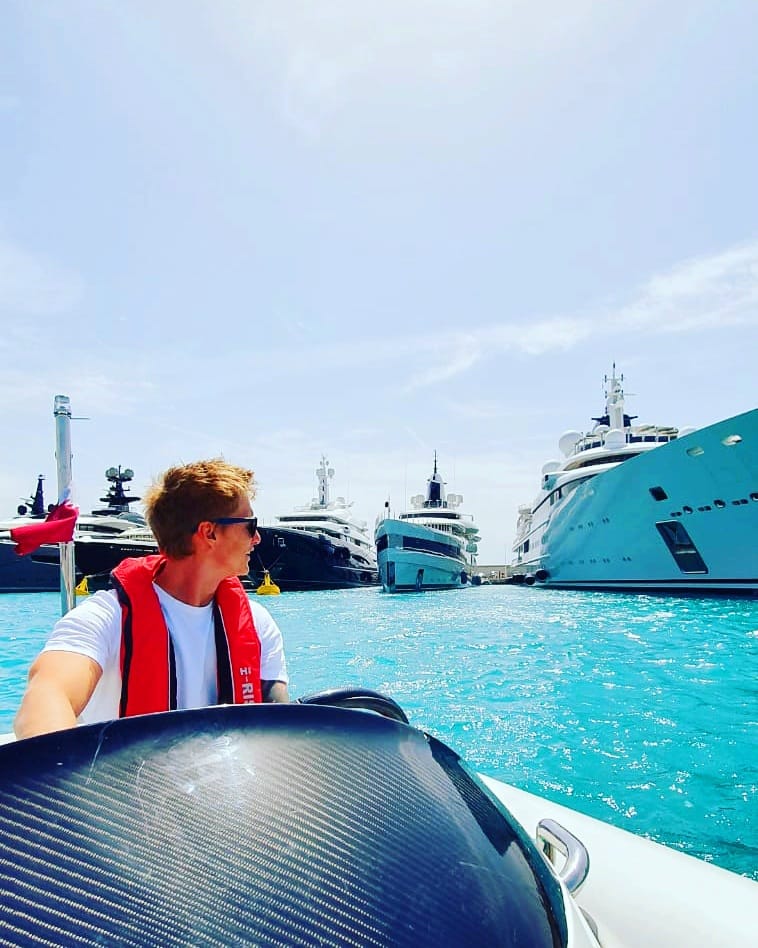
Yacht Deckhand Premium STCW
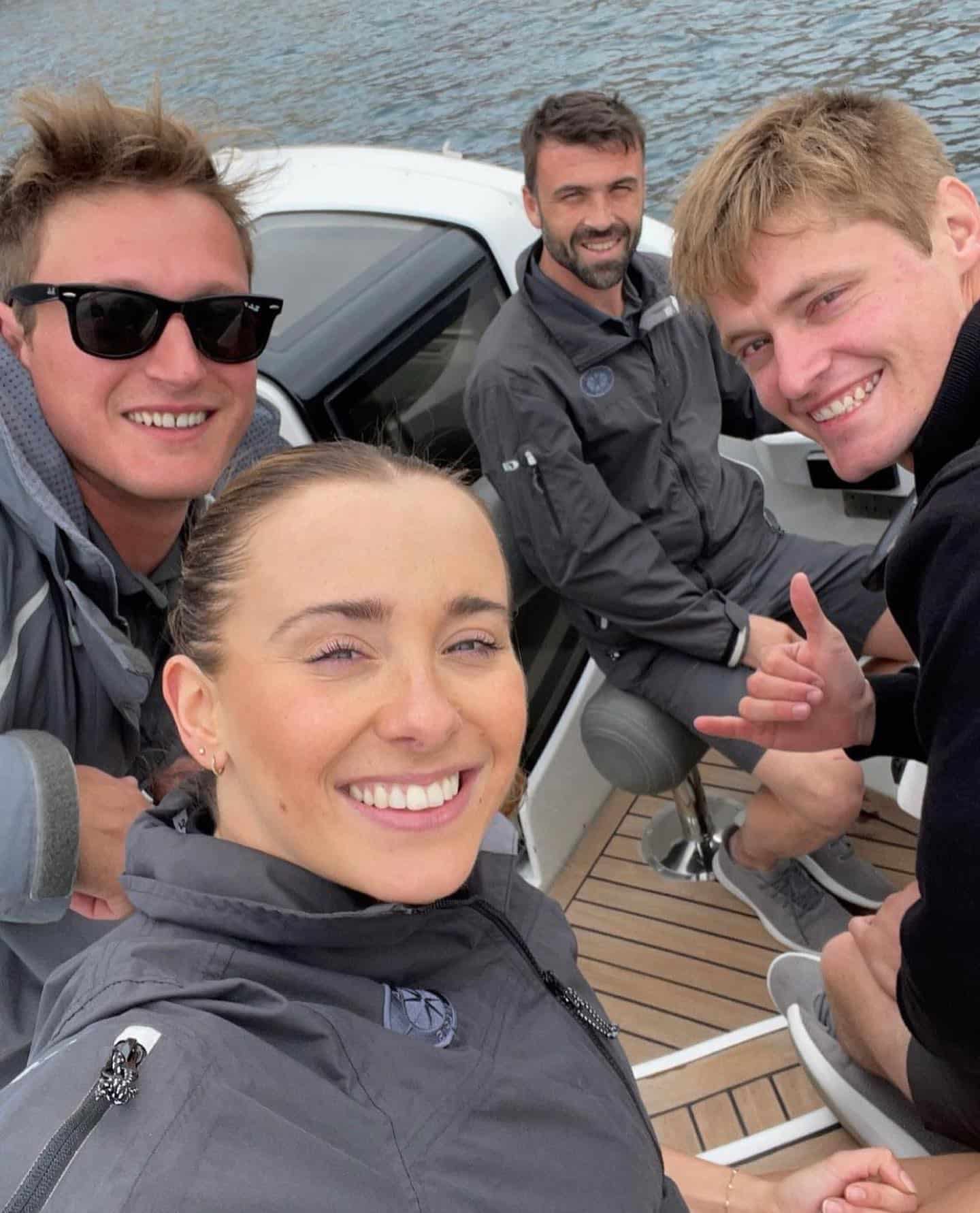
Yacht Stewardess Premium STCW
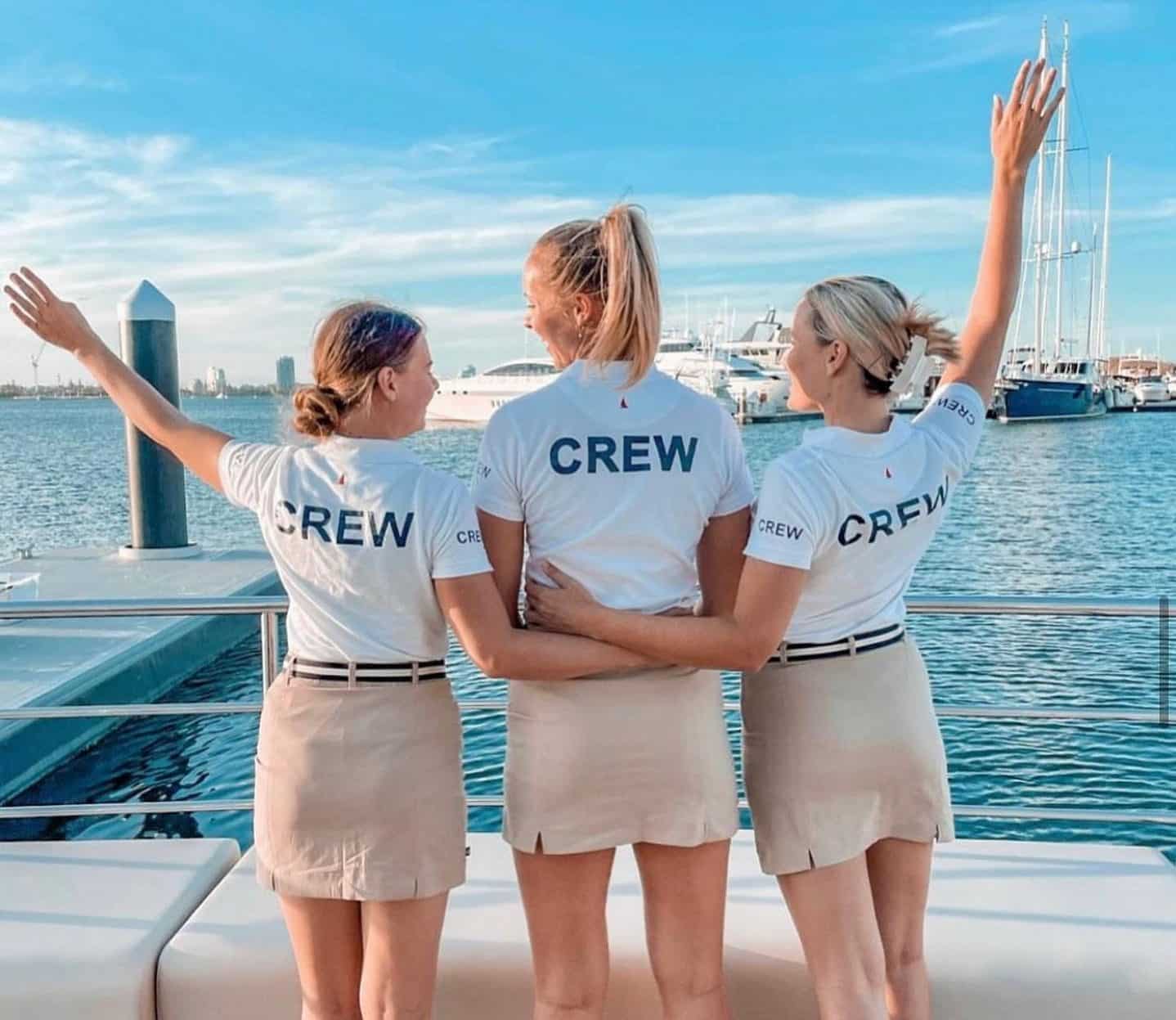
Yacht Stewardess Full STCW
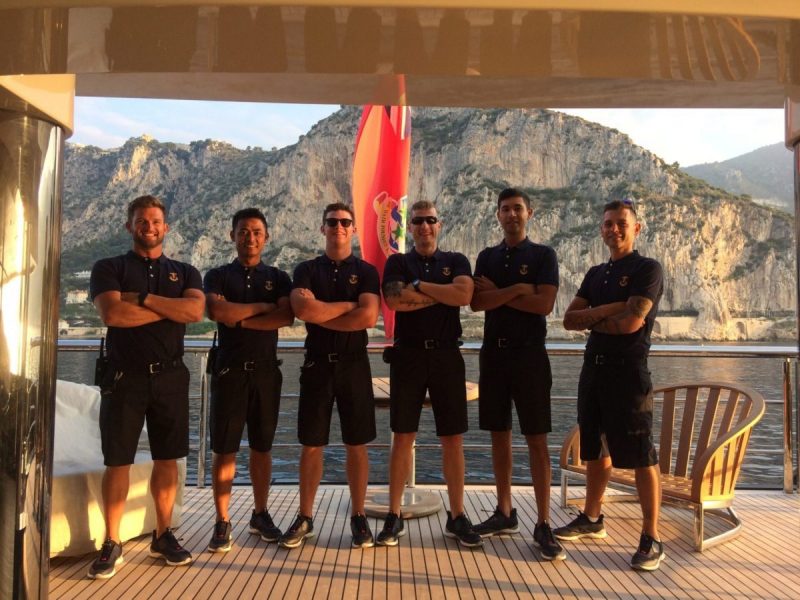
Superyacht Deckhand Full STCW
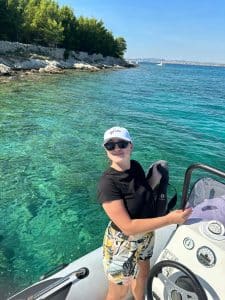
STCW Training in Holland- A Comprehensive Guide

Top 10 best places to find a Yacht job in the Med 2024?

RYA Powerboat Level 2 for yacht crew: Unlock Your Powerboating Skills
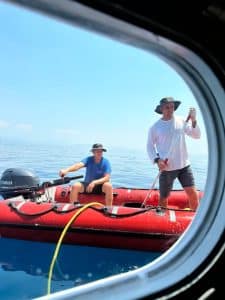
How Much Does Yacht Crew Make?

Top 10 Benefits of STCW Course Netherlands

Yacht Stewardess Training in Amsterdam
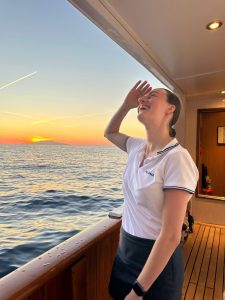
Yacht Crew Courses for Holland: Food Hygiene Level 2

Yacht Deckhand Training in United States: Upgrade Your Career at Sea
Superyacht crew training europe.
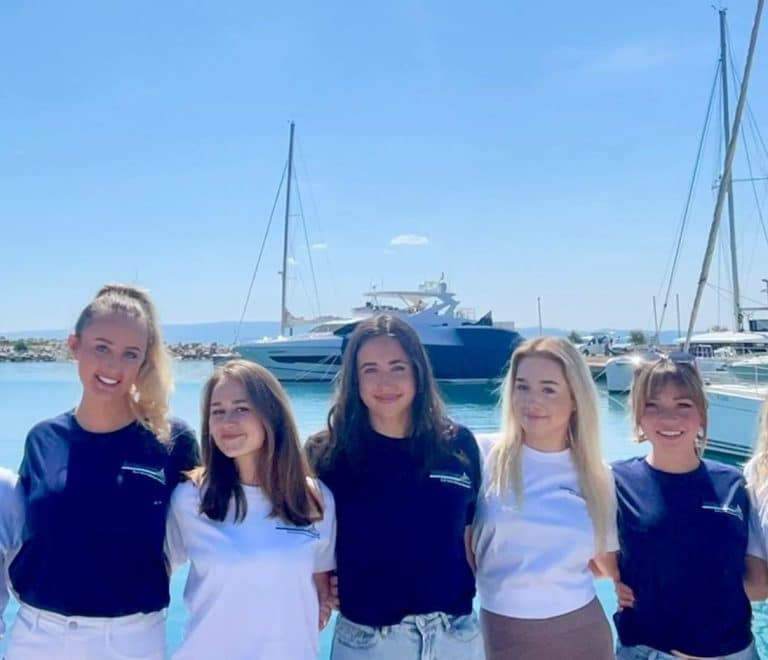
2024 Dates full. Book last 2 spots for October date with payment plan “paylater50”
Get free yacht cv and yacht job offers
- Bottom Painting & Prop Speed
- Fiberglass & Paint Work
- Running Gear & Valves
- Full-Service Team
- Monthly Maintenance Programs
- Dockside Service Team
- Full-Service Boatyard
- Management Services
- Accounting & Reporting
- Relevant Management Experience
- News and Media
Do You Need a License to Drive a Yacht?
Owning a yacht embodies luxury, freedom, and adventure on the open waters. However, amid the allure of yacht ownership, there's a critical aspect often overlooked—the necessity of possessing a valid yacht license. This article delves into why having a license to drive a yacht is indispensable for aspiring owners. But do you need a license to drive a yacht? The team at Yacht Management , a leading provider of yacht maintenance services, provides all the information you need to know here.
What to Know About Yacht Ownership

What to Know About Yacht Ownership As a leading yacht maintenance company, we understand that yacht ownership represents the epitome of luxury and an unparalleled sense of freedom in the realm of maritime indulgence. It embodies an aspirational lifestyle coveted by many, symbolizing not just a possession but being amid a world of opulence and unparalleled experiences.
The allure of owning a yacht extends beyond mere ownership. It encapsulates the spirit of adventure and the thrill of exploration on the open seas. Picture the sheer liberation of charting your course, unfettered by land-bound constraints, navigating through pristine waters to your chosen destinations. It's a lifestyle that harmonizes luxury with the freedom to explore remote coves, pristine islands, and exotic locales, all within the sanctum of your private vessel.
Yacht ownership is more than a status symbol; it's a gateway to a unique way of life where one can escape the ordinary and immerse oneself in the extraordinary. The sensation of being surrounded by boundless azure horizons, the sun painting the sky in hues of gold during sunset cruises, and the gentle rhythm of waves against the hull—all contribute to an unmatched sense of liberation and tranquility.
Owning a yacht brings unparalleled freedom, allowing one to embrace the spontaneity of travel and the luxury of seafaring without limitations. It's an embodiment of personal expression, where the yacht becomes an extension of one's identity, reflecting individual tastes and desires amidst the vast expanse of the ocean.
Being a yacht owner is not solely about possessing a magnificent vessel; it's an invitation to a lifestyle where luxury, adventure, and the boundless freedom of the seas converge, creating an experience that transcends the ordinary and defines the extraordinary. But do you need a license to drive a yacht and make the lifestyle your everyday experience?
Why Having a License for a Yacht Is So Important
There is more to know beyond answering the question, "Do you need a license to drive a yacht?" Knowing why you want one to be in your possession is important. Below are some of the main points our yacht service experts want you to remember.
Legal Compliance and Regulations of a Florida Boating License
The operation of a yacht demands meticulous adherence to a myriad of legal frameworks and maritime regulations. These encompass licensing requirements, registration obligations, and adherence to safety standards stipulated by international and regional maritime bodies. Understanding and complying with these legal mandates is not merely a formality. It is the cornerstone of responsible yachting. Moreover, a profound comprehension of maritime laws ensures the safety of all onboard, mitigating risks and fostering a secure environment for crew and passengers alike.
Mastery of Navigation at Sea
Navigating a yacht presents unique challenges that demand a comprehensive grasp of navigation techniques. Unlike land-based travel, yachting requires proficiency in understanding nautical charts, interpreting weather patterns, and employing navigation tools specific to maritime environments. Mastering these skills is imperative for ensuring safe passage, efficient handling of the vessel, and the ability to navigate diverse and often unpredictable waterways.
Handling Emergencies at Sea The vastness of the seas brings with it the potential for unforeseen emergencies. From inclement weather conditions to mechanical failures, being equipped to address these difficulties is non-negotiable. A thorough understanding of emergency protocols, swift decision-making in crisis scenarios, and possessing the skill set to manage emergencies effectively are paramount. Whether it involves first aid proficiency, knowledge of distress signals, or executing evacuation procedures, preparedness is vital to ensuring the safety and well-being of everyone aboard. Do you need a license to drive a yacht and handle these emergencies? The experience comes with the practice that only a license will present to you.
Obtaining a license to drive a yacht extends far beyond a legal requirement. It embodies a commitment to safety, proficiency, and responsible seamanship. Mastery of maritime laws, navigation skills, and preparedness in handling emergencies form the bedrock of a conscientious and adept yacht operator, ensuring not just compliance but also the safety and security of all involved in the yachting experience.
The Process of Obtaining a Florida Yacht License "Do you need a license to drive a yacht?" This question often marks the outset of one's journey toward navigating the world's waters aboard one's own vessel. Addressing this query initiates a multifaceted process involving stringent prerequisites and comprehensive training to ensure the mastery of essential skills integral to responsible yacht operation. Our yacht care professionals are masters in all things related to navigation. Here, they present things you must know when you are undergoing the process of obtaining your license.
Florida Boat License Requirement and Training Acquiring a yacht license requires fulfilling specific prerequisites that vary depending on the region and the license type sought. Typically, applicants must meet age requirements, undergo a thorough medical examination to ensure physical fitness and complete a specified number of logged sea hours. A fundamental understanding of maritime laws and navigation principles is also essential through formal education or training courses.
Training programs for yacht licensing encompass a comprehensive curriculum covering seamanship, navigation techniques, safety protocols, and emergency procedures. These programs, often conducted by certified maritime institutions or accredited training centers, offer theoretical instruction complemented by practical, hands-on experience aboard vessels. They equip aspiring yacht operators with the knowledge and skills necessary to navigate, operate, and manage a yacht proficiently and safely.
Variations of the License for Boating in Florida Yacht licenses vary in scope and designation, catering to different yacht sizes, navigational zones, and purposes. Common categories include licenses for recreational yachts, commercial vessels, and specific endorsements for operating in coastal or open waters. Licenses may also differ based on propulsion systems, accommodating both sail and motor yachts. The scope ranges from inland waterways to unrestricted navigation in international waters, reflecting varying degrees of competency and experience required for each category.
Beyond the fundamental yacht license, endorsements or supplementary certifications augment an operator's skill set. These endorsements often focus on specialized areas such as offshore sailing, handling specific types of vessels, or certifications in advanced navigation techniques. Additionally, safety and first aid, radio operation, or environmental stewardship certifications further enhance an operator's capabilities and preparedness, ensuring a comprehensive skill set for navigating diverse yachting scenarios.
Obtaining a yacht license involves meeting prerequisites, undergoing rigorous training, and selecting the appropriate license category tailored to one's yachting ambitions. Furthermore, pursuing endorsements and supplementary certifications enriches an operator's proficiency and preparedness, ensuring a well-rounded skill set for navigating the complexities of yachting.
Get in Touch With a Leader Among Yacht Maintenance Companies
Do you need a license to drive a yacht? Yes! It won't only prove essential in legal and regulatory matters. It will also provide the necessary experience and practice to captain a vessel confidently.
But if you're seeking a partner to care for your watercraft, don't settle for just any South Florida yacht maintenance company. Team up with the experts at Yacht Management for unmatched care. If you're interested in learning more, feel free to reach out to our team today or call our team directly to speak with a representative today.
Be sure to also take a look at our yachting blog for a deep dive into several topics our professionals regularly cover. Take your yachting experience to the next level with the help of seasoned experts who call the ocean home and their clients a commitment to excellence that will be met.
Related Readings:
- A Beginner’s Guide to Boat Navigation
- The Art of Luxury Yacht Provisioning
- Reasons to Hire a Boat Captain

For all inquiries, fill out the form below and a member of our team will respond as soon as possible
Impartial training and careers advice
Call us: +441983 280 641
+441983 280 641
- How to become a Yachtie
So you’re thinking about becoming a Yachtie?
You may have a friend or relative who already works in the industry, or you have watched TV programmes like Below Deck , you know working on a yacht is the right for you, but where do you start?
With the potential to earn great money, travel, and work with loads of like-minded people, it’s not surprising this job ticks a lot of boxes for many people.
Becoming a Yachtie and getting paid to work on luxury yachts may seem like a job and industry that only the elite can have access to, or it just seems too confusing to start.
However, with an understanding of the requirements, certification, and having some expectations of what job role you should be looking for, starting work as a Yachtie will not seem so daunting.
What is a Yachtie?
Before we go any further, let’s make sure we are all singing off the same hymn sheet.
A Yachtie is a broad term used to describe anyone who works on a yacht. More specifically, it has become the term for people working as yacht crew on superyachts.
A superyacht is a very large boat that is extremely luxurious and often owned by multi millionaires and billionaires.
These Yachties who work on superyachts hold a number of different positions. Most Yachties will start their superyacht career working as a Deckhand or Stewardess. With more experience and responsibilities, your role will change as you progress up the career ladder.
It’s worth noting there are other types of yachting and Yachties. The other kind of ‘Yachtie’ could describe those who hold their Yachtmaster qualification and have jobs like skipper charter boats.
Job roles for new Yachties
Yachties new to the industry (also known as ‘Green’ Yachties) will traditionally apply for entry levels roles, which are Yacht Deckhands or Yacht Stewardesses.
These are both very different jobs, so you need to be sure which one you want to do and start training for that career path.
Yacht Stewardess (Stew)
A Stewardess, or Steward , looks after the interior of the yacht. This means anything that happens inside the boat, you will be responsible for it.
Think of any job in the hospitality industry and then combine it into one role on a yacht, that is what you will be doing.
From making beds, doing the laundry, cleaning, serving food, and hosting dinner, you will do it all to a 5-star standard. Anything less than perfect, and your guests won’t be satisfied.
It’s the small things that make the difference between high standards and exceptional standards. You must have a great eye for detail and be able to make sure no stone is left unturned. Everything on board the ship must be 100% perfect at all times.
You will be reporting to Chief Stew, who will be your manager and give you your task list. After a good few seasons as a green Stewardess, you will have enough experience and confidence to apply for Chief Stewardess roles.
Yacht Deckhand
In contrast to the Stewardess role, Deckhands look after the exterior of the boat.
Predominantly a male role, Deckhands will do everything from general maintenance to cleaning the teak deck, looking after the toys (Jet Skis, etc.), and even driving the tenders.
Deckhands should know how a yacht operates, the basic terminology used onboard, how to tie knots, and loads and loads of enthusiasm.
Deckhands may also dip in and out of helping the Stewardesses, and it isn’t uncommon for Deckhands to give a hand during busy evening meal preparation and service.
5 steps to Becoming a Yachtie
With an understanding of the job roles available, you can now decide which one best suits you. With the right attitude, qualifications, and knowing where to look for work, becoming a Yachtie is achievable for anyone who wants it.
- Have the right attitude
- Pass an ENG1 medical
- Complete STCW Basic Safety Training
- Gain experience
- Go to a superyacht marina
1. Have the right attitude
Along with gaining the correct qualifications to prove your competence, to become a Yachtie, you must have certain characteristics to thrive in this industry.
Yachties have to be well presented, articulate, know how to take orders, and be able to work hard, all with a smile and enthusiasm. You have to be able to work incredibly long hours, sometimes under stressful conditions, without losing your patience.
Having a job on a superyacht may sound glamorous, but if it’s your 10th day working in a row and you’ve got your head stuck down a toilet trying to clean it, you may want to think again. To become a Yachtie, you have to be happy with spending a lot of time away from home without seeing your friends and family. This may all seem obvious, but this situation does not suit everyone, and without careful consideration of the negatives, you will leave this industry quicker than when you arrived.
2. Pass ENG1 Medical
The first actionable step you need to take to become a Yachtie is gaining an ENG1 medical certificate. The ENG1 medical is an examination by an approved MCA (Maritime and Coastguard Agency) Doctor to make sure you are fit and able to work at sea.
Every single person working at sea must have an ENG1 medical certificate , without this, you are not able to start working on superyachts. The examination will take around 45 minutes, during which the doctor will go through a checklist to make sure you have no underlying health conditions that may impact the safety of you or anyone else on board the ship.
The most common reason new yachties fail the ENG1 is colour blindness. Surprisingly many people can go through their whole life without knowing they are colour blind. However, on board a ship, this can have huge implications. If you cannot identify signals and lights correctly, it will be impossible for you to help navigate the ship in an emergency. Unfortunately, this means you cannot start work as a Yachtie.
3. Complete STCW Basic Safety Training
Another requirement for working at sea is completing STCW Basic Safety Training . Similar to the ENG1 you can only get a job on a yacht if you have the STCW certificate.
STCW stands for ‘Standards of Training, Certification and Watchkeeping’. It is to make sure that all Seafarers have an understanding of what to do in an emergency and are aware of the procedures required.
STCW Courses are action-packed and quite a bit of fun. From fire fighting to sea survival, you will get stuck in learning, and learn loads of new skills.
4. Gain experience
If you are lucky enough to have a job offer on a superyacht, then having your ENG1 and STCW certificates will be enough.
Don’t worry if you haven’t already got a job offer, it’s quite normal to go through all these steps and not have a job lined up yet. If this is the case, gaining more experience and qualifications is a good idea to give you a competitive advantage over anyone else applying for the same job role.
This is achieved through signing up to a Deckhand or Stewardess Course. On these courses, you will get your standard STCW certificate and a list of extra qualifications demonstrating your competence, ability, and commitment to the industry.
Deckhands will learn how to drive a small yacht, engine maintenance, general yacht repair, and how to clean teak properly. Stewardesses will understand wine and how to serve it, the art of flower arranging, and how to drive a powerboat.
5. Go to a superyacht marina
After you have completed your superyacht training, now is the time to head out to France and look for work. Along with signing up to yacht crew recruitment agencies, going to one of the main superyacht marinas and handing out your CV to Captains is a great way to find work. This is known as dockwalking.
If you complete your Superyacht Course with us, you will have the option of signing up to our recruitment day in Antibes, France. We head out to France as a group, talk you through the process and offer you our industry contacts.
This is a great way to start your journey, and all our students find work in no time.
How much do Yachties make?
So you’ve heard you can make a good amount of money working on superyachts? Along with the travel, the great salary is why many people decide to become a Yachtie.
Like a job within any industry, salary varies. A Superyacht will agree on a crew salary budget with the owner of the yacht.
If you are just starting out, you can expect a salary of around €2,200 – €3,200 per month. However, the industry standard is €2,500 per month. Once you gain more experience and qualifications, your salary will increase.
When you look at the salary at face value, it looks great but not incredible, however when you are at sea, you have zero outgoings. Working on a yacht means you don’t have to pay rent, bills, or buy food which will save you heaps of money compared with working at home.
If you want to see the salaries of all yacht crew, check out our Salary Guide.
Do Yachties pay taxes?
Another reason why the salary is so appealing is that in most cases Yachties don’t have to pay tax.
This is a government scheme called the Seafarers Earning Deduction , and providing you are eligible, Yachties can keep 100% of their earnings.
To be able to apply for Seafarers Earning Deduction, you must be working on a ship outside of UK waters for a period of 365 days. This doesn’t mean you have to spend a whole year at once away from home, rather you can only apply once all the days you work on a yacht adds up to 365.
Being able to understand this tax scheme will be hugely beneficial before you start working on a Superyacht.
Download our free Guide
Want to know more about working on a Superyacht, please download our free guide .
Related articles
- Seafarers Tax
5 ways to ensure your SED claim is rock solid
The Seafarers’ Earnings Deduction, often referred to as the SED, is a tax legislation that enables seafarers to claim back their UK income tax. It a...
Do I need to pay off my Student loan if I work on a Superyacht?
Good question! First, let me say that the information below is aimed at people who have studied in the UK and took out a Student Loan to cover course ...
Have I got the right experience to work in yachting?
If you’re thinking about working on board a Superyacht, we share the skills and experience you need and how to get into the yachting industry in thi...
Essential Guides
Ocean Mapping
New to Yachting
ESSENTIAL YACHT QUALIFICATIONS
Qualifications required to work on board a yacht.

All crew, regardless of their position on board, need to have completed the STCW Basic Safety Training along with obtaining a recognised Seafarers medical certificate, the most popular being the ENG1 which is issued by an MCA ( Maritime and Coastguard Agency ) professional medic.
Without these two certificates, a yacht crew recruitment agent cannot assist you in finding work onboard a yacht .
STCW Basic Safety Training
STCW is a one week long course that provides students with an important introduction to working at sea and the necessary safety knowledge.
STCW stands for ‘Standards of Training, Certification, and Watchkeeping’ and is required for all crew who are working onboard commercial ships or superyachts.
The course teaches the basics of staying safe at sea and it comprises of 5 modules:
Personal Survival Techniques
Fire Fighting and Fire Prevention
Elementary First Aid
Personal Safety and Social Responsibility
Proficiency in Security Awareness
The STCW certification is valid for 5 years from completion of the course, and after that you are required to take an STCW Refresher Course in Fire Fighting and Sea Survival . So, prior to looking for work onboard a yacht, you must make sure all your certification is up to date.
The good news is that there are training centres all around the world where you can complete the STCW course and obtain your certification. Research online to find the nearest centre to you and get started. The course takes 5 days to complete so make sure you have accommodation nearby.
It's also important to ensure that your certificates are issued in English and that the course is certified either by MCA or the national maritime organisation of the country where you take your course.
Seafarers Medical Certificate
Seafarers Medical Certificate is a medical test performed to establish whether your health and your level of fitness allow you to work at sea. The most popular Seafarers Medical Certificate is ENG1 which is issued by an MCA approved doctor but you can also get an equivalent counterpart test in your country.
ENG1 is valid for two years so you will have to make sure to renew it regularly before it expires. Always keep an eye on your expiry dates because, as yacht crew, you might find yourself in the middle of the season with no way of renewing it instantly.
Without a valid Seafarers medical certificate, it is illegal for you to stay and work on board, so always make sure your certificates are up to date.
You can research online to find a medical professional certified to issue a Seafarers Medical Certificate near you.
See the list of MCA approved doctors based in the UK . See the list of MCA approved doctors outside of the UK . See the list of Countries whose seafarer medical fitness certificates are accepted as equivalent to the UK ENG1.
There are two essential certificates all yacht crew need to have to be able to work on board a yacht, regardless of their role.
Other essential guides.

What you need to know about B1/B2 visa

Download yacht crew CV templates

How to write a memorable yachting CV

How to prepare for a yacht interview?

What are the two main yachting seasons?

Big yacht crew hubs you should know about

Is yachting the right choice for me?

Yacht crew salary guide
Explore yacht roles
Download the full ypi crew recruitment market report.
Download the YPI CREW Recruitment Market Report for an in-depth analysis of current trends in superyacht crew recruitment. Gain valuable insights into the market dynamics and trends specific to each department, providing a comprehensive overview of the industry landscape.
Explore the latest in yachting

Olympic Grit and Resilience: What Yacht Crew Can Learn from Elite Athletes

YPI CREW Announces its 2024 Superyacht Recruitment Market Report

Mind the Gaps: How to Explain Employment Breaks on Your Yacht Crew CV

YACHT CREW GUIDES
Learn about different positions on board a yacht.

YACHT CREW SALARY GUIDE
Let’s get started. call us on +33 (0)4 92 90 46 10 or email us., our mission, vision and values, mlc 2006 compliance, essential guides, yacht crew positions.
Chief Officer
Second Officer
Third Officer
Chief Engineer
Interior Crew
Head of Service
Head of Housekeeping
Specialist Positions
Spa Manager
Spa Therapist
Personal Trainer & Yoga Instructor
Hairdresser
Mandatory Certificates
B1/b2 visa information, how to write a memorable cv, how to prepare for an interview, yachting seasons, yacht crew salary guide, is yachting the right choice for me, cv templates, ocean mapping, new to yachting.
+33 (0)4 92 90 46 10

Renew Your Certificate
Recreational courses, superyacht courses, choose your location.
There is an IYT school on six continents. Begin training in the Mediterranean and finish in the Caribbean. Wherever you choose to be! IYT’s unique modular approach to yacht training has allowed the successful establishment of global partner schools offering a broad range of recreational and professional courses.

North America

South America

Learn to Sail
Become A Partner School
- Upgrade Your School
Government & Organization Approvals
- Recreational
- Privacy Policy & Terms Of Use
- Become a Partner School
- Register with IYT
- Find a School
- IYT E-Learning
- Certificate Renewal & Replacement
- Get Certified
- Recreational Training Course Progression
- IYT Passport
- Crossover Opportunities
- Course Progression
- Course Progression Interior
- Dive Boat Training
- Forms And Docs
- Instructor Training
- Personal Watercraft Operator
- Dinghy Sailing Programme
- IYT Try Sailing
- IYT Introductory Sailing Skills
- IYT Day Skipper / Crew Sail
- International Crew
- International Flotilla Skipper
- International Bareboat Skipper
- International Flotilla Skipper Sail – Catamaran
- International Bareboat Skipper Sail – Catamaran
- International Certificate of Competency (ICC Certificate)
- Powerboat Skipper
- Yachtmaster Coastal (Power or Sail)
- Yachtmaster Coastal Sail – Catamaran
- Yachtmaster Offshore (Power or Sail)
- Yachtmaster Offshore Sail – Catamaran
- Yachtmaster Ocean
- Patron de Yates (Yachtmaster Coastal Spanish edition)
- Marine Communications (VHF-SRC)
- Small Powerboat and Rib Master (MCA Recognised)
- IYT Commercial Tender License Course
- Weather Master
- Navigation Master
- Master of Yachts Coastal/Mate 200 Tons (Power or Sail)
- Master of Yachts Limited (Power or Sail)
- Master of Yachts Unlimited
- Superyacht Chef
- Superyacht Deck Crew Course
- Introduction to Yacht Marine Engineering
- Superyacht Hospitality Training
- Boat Engineer Course (SCV Code for Vessels Operating in the Caribbean)
- IYT-MSWI BoatMaster Course
- Become An IYT School
- Find A School
- Course Levels
- Instructor Qualifications
- Vessel Requirements
- Vessel and Facility Requirements
- Unauthorised Schools and Other Entities
- Shipping & Delivery
- Government Approvals
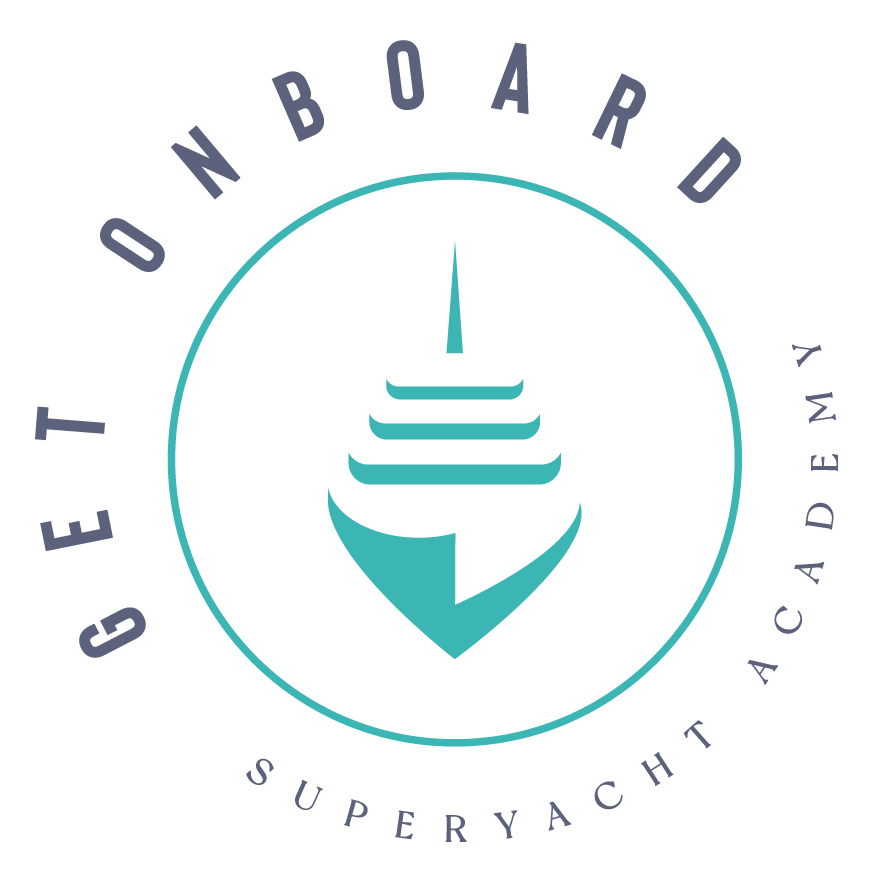
Get Onboard
Superyacht Training

What qualifications are required to work on a Superyacht?
So you wonder- what are the essential yacht qualifications and certifications needed to work as yacht crew? No matter whether you are the most experienced captain or a brand new yachtie, it is essential that you acquire, and maintain your yacht qualifications and certifications up to date. In order to be eligible to work at sea, there are some mandatory legal requirements:
- STCW basic training, including Proficiency in Designated Security Duties (PDSD)
- ENG1 medical Examination
STCW Basic Safety Training Yacht Certificate
The STCW yacht qualification is the Standards of Training, Certification and Watchingkeeping (STWC) course and it’s a compulsory requirement for any seafarer employed at sea. The STCW Basic Safety Training yacht qualification comprises five modules which take eleven days to complete. The modules are personal survival techniques, firefighting, elementary first aid, personal safety and social responsibility, and proficiency in designated security duties. Learn more about the STCW Basic Safety Training certificate here.
ENG1 SEAFARER MEDICAL CERTIFICATE
A seafarer medical certificate is mandatory for anyone hoping to get a job on a yacht. The most popular and widely recognised of the available seafarer medical certificates is the ENG1. The ENG1 Medical is a basic medical certificate and is as essential as your STCW’10. It is a mandatory requirement to prove you are fit to work as a yacht crew member at sea. Only MCA-approved doctors can perform an ENG 1 medical exam. Learn more about the ENG1 Seafarer Medical Certificate .
Once you are confident you are fit and able to work at sea, it’s time to complete your additional training in the department you feel is most appealing. Finding your first job on a super yacht is by far the most challenging part of the process, which is why we strongly suggest you look into completing additional courses in order to better your chances of being hired. We offer full career packages for the deckhands, stewardesses, chefs and engineers. While the STCW and ENG1 are the only compulsory courses that you need to complete in eligible to work at sea, there are various other courses you can complete that will greatly enhance your CV. These include deck modules like, Powerboat Level 2 , Yacht Rating certificate , Jetski licence , and Stewardess training which includes flower arranging, barista training, wine pairing and basic housekeeping skills.
While the yachting industry has many perks, it certainly isn’t for everyone. Often you are required to spend long periods away from friends and family as well as working long hours living in a shared work environment. Take a look at our article to learn the truth about yacht crew life and see if working on a yacht is really for you. Do you still have some unanswered questions? Why not download our eBook and find out all the insider tips of surviving, and preparing for yacht crew life , or contact the Get Onboard team.
Needing more?
Error: Contact form not found.
RYA/MCA Online
1. what are the basic requirements you need to be eligible to work in the yachting industry, 2. what is the stcw and why do i need it, 3. what is the eng1 medical certificate, 4. what land based experience will help me find a super yacht job, 5. what are the different departments onboard, 6. what crew training is required for me to work as a junior deckhand.
- Yachtmaster/Coastal Skipper Theory
- Yachtmaster/Coastal Practical
- Specialist Super Yacht Training Course (Deck Hand Training Course)
- RYA Power Boat Level II
- RYA Personal Watercraft Course
- RYA Competent Crew Certificate
- RYA Day Skipper Theory and Practical Certificates
- VHF Radio Operator’s License
7. What crew training is required for me to work as a junior stewardess?
- Stewardess Course
- Proficiency in Designated Security Duties (PDSD)
- MCA Food Safety Level 2
- RYA Powerboat Level 2
8. How do I book my training courses?
9. how do i get my first job on a yacht, 10. are these courses worth it, or am i just wasting my money, 11. will i get hired for my first job from south africa, 12. what is daywork, 13. what are the best locations to get a yacht job, 14. how much can a motor yacht stewardess or deckhand earn, 15. what are the negatives of working on a yacht, 16. what are the positives of working on a yacht, 17. is working on a super yacht for everyone, 18. what is the minimum age to work on a yacht, 19. is accommodation provided when i am completing my yacht training in cape town.

Deckhand Training Courses
Entry-level deckhand courses and qualifications to help land your first job on a superyacht.
Essential Deckhand Training:
Entry-level deckhand courses and qualifications are essential to your success in the superyacht industry. Obtaining your first job as a deckhand is difficult as it is a fiercely competitive position. With a great deal of training available, it may be difficult to understand which deckhand courses are right for you and your budget. Before deciding on which courses to enrol in, we encourage you to understand the role of these courses and certifications so that you are able to make informed decisions.
Below is a list of essential courses you should take as an aspiring deckhand with little or no experience :
- STCW Basic Training
- RYA Power Boat Level 2 or IYT Rib Master
- Proficiency in Security Awareness PSA or Designated Security Duties (PDSD)
You are able to connect with our global network of deckhand training providers for each course, either by selecting a specific course, or by selecting a region in the deckhand course finder section, found below the course content.

STCW Basic Safety Training
In order for you to legally obtain a job on a commercial superyacht (over 24m) you have to be certified with all four basic safety training modules, which are as follows:
- Personal Survival Techniques | PST (A-VI/1-1)
- Fire Fighting Fire Prevention | FFP (A-VI/1-2)
- Elementary First Aid | EFA (A-VI/1-3)
- Personal Safety and Social Responsibilities | PSSR (A-VI/1-4)
STCW Basic Training courses can be booked on an individual bases or booked in combination with other essential deckhand courses. You can find out more about STCW Basic Training , connect with an STCW Basic Training Centre near you , or continue to other deckhand safety training courses below.
*Although this is a commercial requirement, it is generally seen as a requirement for employment onboard private vessels by yacht owners, captains, management companies or flag states. Failure to obtain STCW Basic training severely limits employment opportunities.
Powerboat / Rib Training:
As an aspiring deckhand, this course is a necessity, providing you with an essential license to drive superyacht tenders around the world. Unless you have a role that excludes you from such deckhand activities, this is a crucial course that forms the basis upon which you can develop your vessel handling skills. These skills are not only required to drive guests, but also to pass practical examinations required for licenses required to drive larger vessels.
The two most popular courses that do not require any prior experience, are the RYA Powerboat Level 2 course or the IYT Small Powerboat & Rib Master . Although the majority of deckhand job posts request a Powerboat Level II, an IYT Small Powerboat & Rib Master is seen as an equivalent and serves the same purpose. Both are recognised by the MCA.
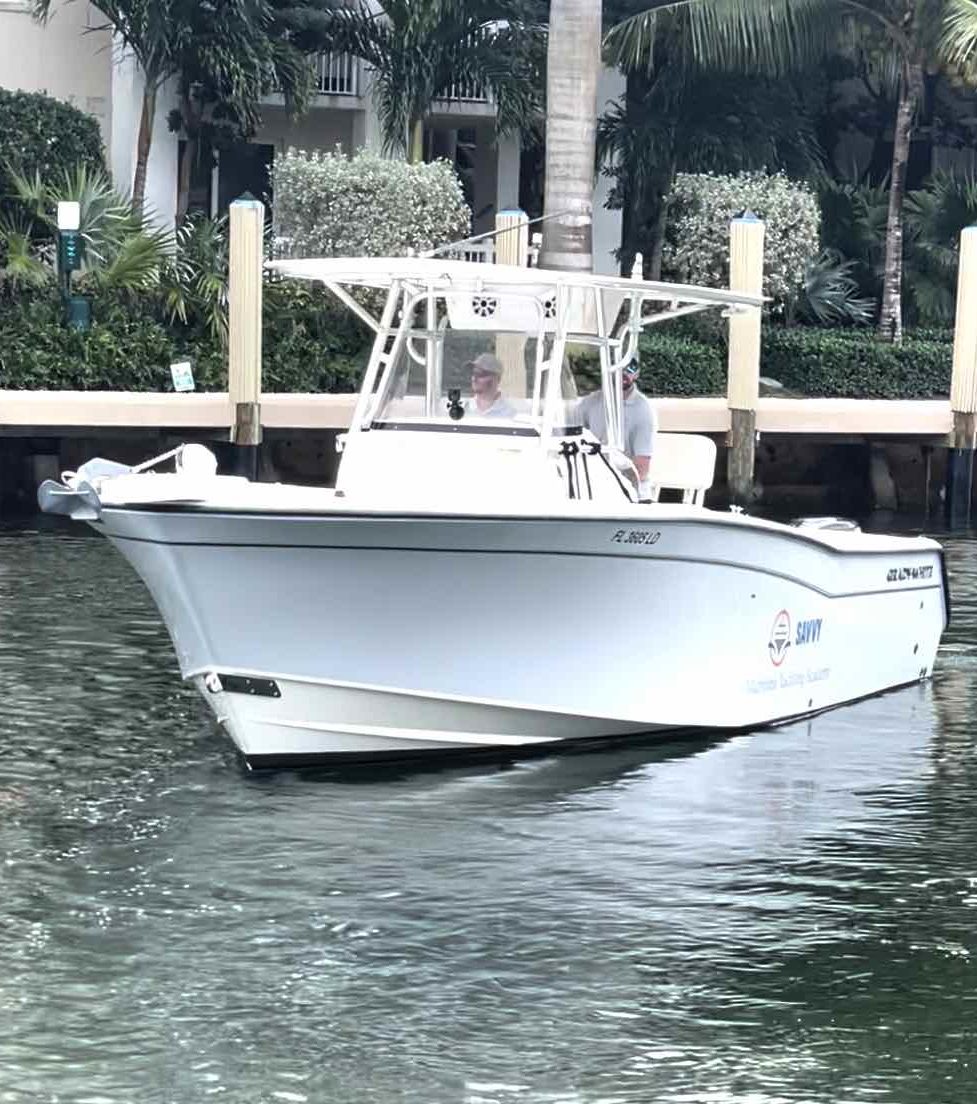
Proficiency in Security Certificate
(STCW A-VI/6-1) & (STCW A-VI/6-1)
In order to work on an ISPS-compliant vessel, an STCW proficiency in security certificate is required. Proficiency in Designated Security Awareness (PSA) is the minimum requirement, whereas Proficiency in Designated Security Duties (PDSD) is required for crew who are designated security duties on such vessels.
Both courses can be done in class or online. *ISPS complaint yachts are commercial yachts larger than 500GT (Usually commercial yachts +50m in length)*
Find out more about the PSA & PDSD Certification and connect with a training provider, or continue reading about further deckhand training below.
Beneficial Deckhand Courses:
Courses to broaden your deckhand skill set and capabilities for common superyacht duties
- Entry Level Superyacht Deckhand Course
- VHF SRC (Short Range) Radio Certificate
- Personal Watercraft Operator / Certificate
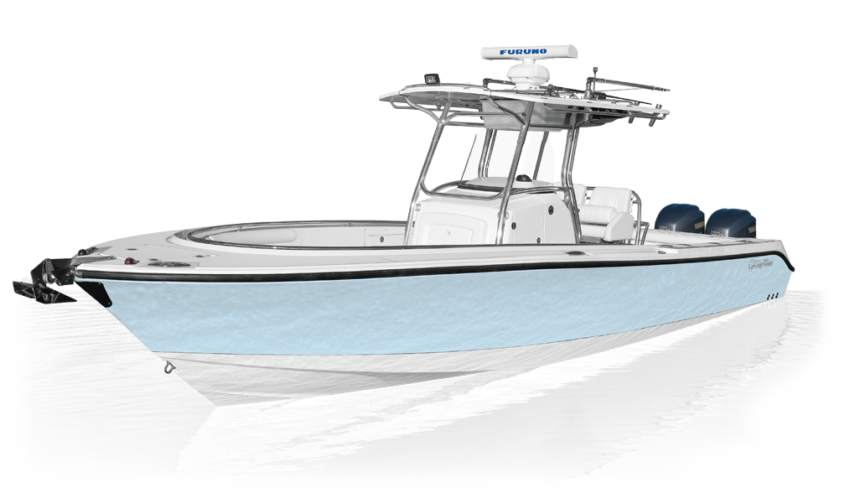
Superyacht Deckhand Course:
Most "Superyacht Deckhand Courses" are non-accredited and do not form part of a requirement for legal employment but are generally sold in conjunction with essential courses (some of which may be mandatory or deemed as appropriate by the training provider in question) and advertised as a "superyacht deckhand course" package or similar.
The purpose of a superyacht deckhand course to introduce candidates to the duties and skills associated with the role of a deckhand. This course is tailored towards candidates with little to no exposure to the superyacht industry.
Course content is dependant on the training provider but generally includes industry information, general deck procedures, wash-downs, maintenance, cleaning procedures, line handling, knots and bends, as well other topics to help familiarize you with the deck department career path the lies ahead.
Superyacht deckhand courses give potential employers an indication that yous have a basic skill set and understanding of the deckhand duties that lie ahead. This forms a foundation upon which to build skills and knowledge through onboard training and experience. Depending on the location and school in question, a small amount of onboard training/experience on a yacht nearby may be included.
VHF Short Range Certificate (SRC):
As a deckhand seeking your first job in the yachting industry, it is advisable to obtain a VHF Short Range Certificate, preferably one recognised by the MCA. VHF is a common form of communication not only from the bridge of the superyacht but also from tenders to the main vessel (or other vessels) when out of UHF Radio range (your personal hand held for internal crew communication), or to land based authorities.
This 1-day course is an essential qualification required for further deck qualifications (Such as a Yachtmaster/ Master of Yachts), and is also required for commercial endorsement of a small powerboat license. The sooner you as a deckhand becomes familiar with this equipment the better. It is, therefore, a recommended course for green deckhands to complete.

Personal Watercraft (PWC) License
PWC's often referred to as Jet Ski's or Wave Runners, are common watercraft found on board superyachts. Operation of PWC's is a common duty of a deckhands during guest trips. Certain countries require PWC operators to hold a license, most commonly countries in Europe/ The Mediterranean, making it mandatory for crew to hold a license should they wish to operate one.
This one-day theory and practical course will teach you how to operate and navigate a personal watercraft in a safe manner. No previous experience or qualifications are required. A certificate is provided upon successful completion of the course (to the required standard). The IYT PWC and RYA PWC are recommended, accredited versions of this course.
In areas where jet ski licenses are not required, it is a commonly requested by captains, management companies and owners for insurance purposes. It is very beneficial to hold such a license.
Complementary Deckhand Training
Additional courses to give you an edge (that do not require previous deckhand experience)
- RYA Personal Watercraft (PWC) Instructor
- SCUBA Diving Qualifications
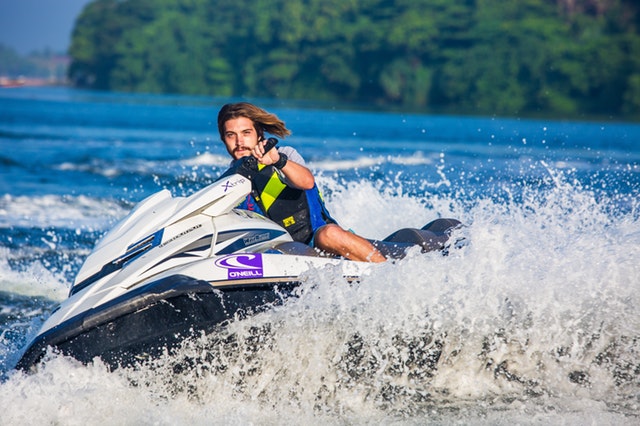
RYA Personal Watercraft (Jet Ski) Instructor Course
Due to the fact that charter guests and yacht crew require a PWC license in order to operate a Jet Ski in the Med, the demand for crew with the PWC instructor certification is high. Crew with the instructor license (working on a correctly registered vessel) are able to certify guests with an RYA Introduction to PWC Safety Course, allowing them to use the watercraft during their time on board.
Scuba Diving:
Scuba diving experience and qualifications are beneficial in helping land a job as a deckhand. While Dive Instructor and Dive Master courses considerably improve the chances of getting a job on vessels that support guest diving experiences, basic Open Water and Advanced diving qualifications are also beneficial and will improve your CV.
Whether it is accompanying guests on a dive in the Bahamas or inspecting something under the hull of the yacht, scuba diving experience can be a great addition to your skill set as a deckhand.
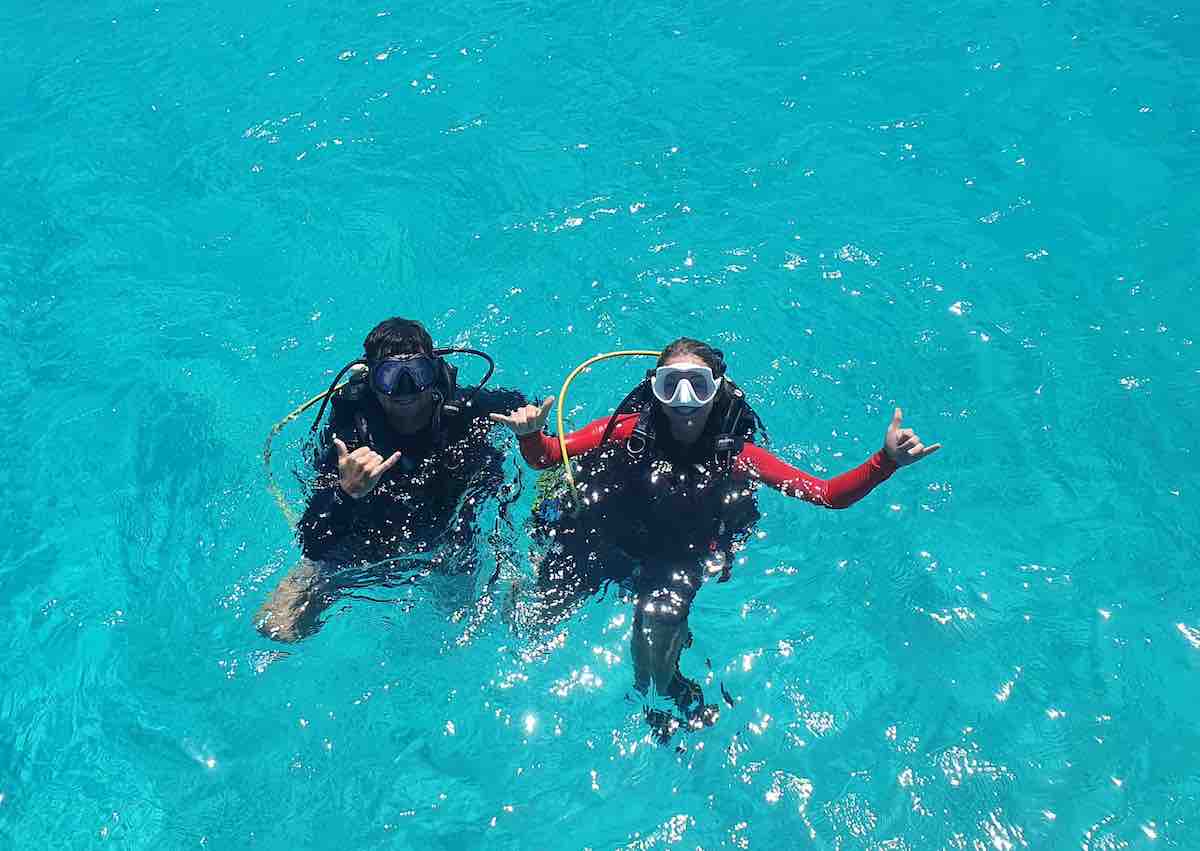
Deckhand Training & Certificates For Deckhands With Sea Time & Experience
Courses & certification for deckhands that have evidence of sea service and real tender handling experience after 1 to a few busy seasons of employment
- MCA Yacht Rating Certificate
- Yacht-Master / Master of Yachts
- Advanced Powerboat
- MCA Efficient Deckhand (EDH)
MCA Yacht Rating Certificate
Certain commercial superyachts require a number of crew to hold a Yacht Rating certificate as per the safe manning procedures of the vessel in question. An individual can apply for an MCA Yacht Rating certificate once the required sea time is acquired and by completing specific tasks in the Training Record Book (TRB), signed off by a qualified officer or captain.
For Crew without experience, the yacht service requirement can be reduced if aYacht Rating Course Completion Certificate or - IYT Superyacht Deck Crew Course is attained but the MCA Yacht Rating Certificate can only be applied for once 2 months of sea service is acquired.
Therefore, although a "Yacht Rating Course" covers some important aspects, usually taught onboard, completion of this course does not qualify a candidate to apply for a job that requires an MCA Yacht Rating Certificate , unless the applicant has sufficient sea service and meets the medical and STCW requirement.
RYA Advanced Powerboat
If you are required to be licensed to drive larger powerboats (10m - 24m) during the day and night and have insufficient sea time and experience for your Master of Yachts 200, then the Advanced Power boat course is an option to consider. With an RYA/MCA Advanced Powerboat Commercial Endorsement, license holders are able to drive an MCA coded boat up to 24m in length or 80 gross tons up to 20 miles away from the shore or safe haven. The responsibility of large tender handling is usually only given to crew have built up significant time behind the helm of tenders, under supervision of more experienced crew. If you are new to the industry (unless you have real large power boating experience) you are likely to be accompanied and supervised by a more experienced, licensed crew member during large tender handling duties. It should therefore not be assumed that this course will allow you to take on such duties without time, experience and training with a more experienced crew member present.
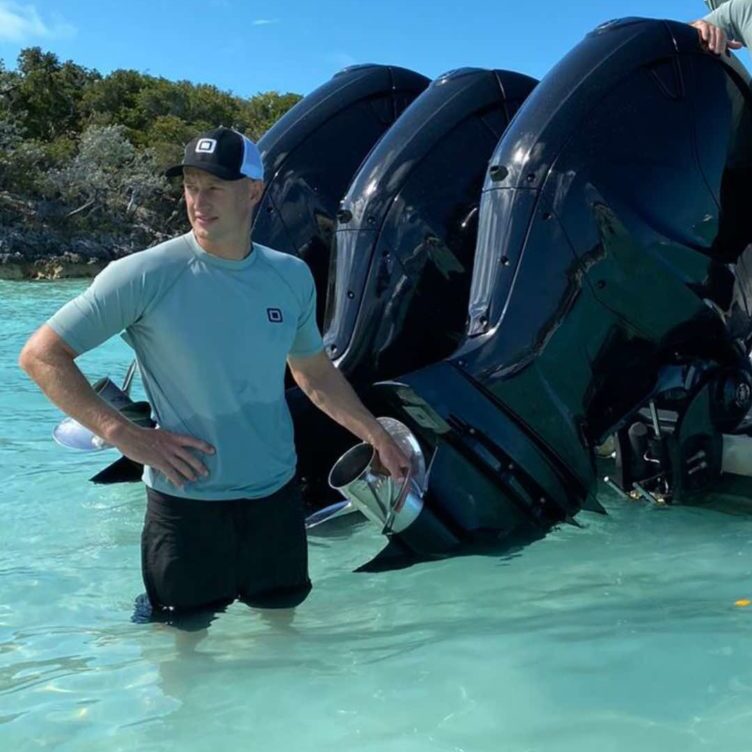
Yachtmaster / Master of Yachts 200:
Gaining a Master of Yachts Certification is an important step for those who would like to progress their career as a deckhand and start taking on additional responsibilities. A Commercially Endorsed Master of Yachts 200GT opens up more employment opportunities (fulfils certain manning requirements for commercial vessels), allows candidates to work as an Officer on yachts <500GT and allows candidates to begin training modules that form part of the requirement for an MCA Officer of The Watch (OOW) 3000 and is a common requirement for the primary drivers of guests in large superyacht tenders. Find out more about the RYA and IYT Yachtmaster / Master of Yachts.
Efficient Deckhand (EDH) Course
Once you have your Yachtmaster / Master of Yachts under your belt and you are ready to start chipping away at your OOW (MCA Officer of the Watch 3000 Limited), it is advised to begin with the Efficient Deckhand Course. An EDH will ensure that you operate in a safe and professional manner when moving to a more senior role where leadership and instruction is required. The framework for further training can be found on our Deckhand to OOW course page .
Find Deckhand Training Courses Near Me
Select the region you would like to find deckhand training course centres in. You can refine the region once on the results page
South Africa
United States
United Kingdom & Ireland

Asia Pacific
Deckhand Training Course Centres in South Africa:
View Featured Training Providers below or select Durban , Cape Town , Langebaan or South Africa (All) to view training recommended training providers:
Trilogy Luxury Training
Deckhand training course centres in the united states of america:.
Book deckhand training at the best training centres in Fort Lauderdale , Florida (All) or other area in the United States (All) . Find featured courses and training providers in the area below:
Featured Training Courses
Seven seas preparatory academy, savvy maritime academy.
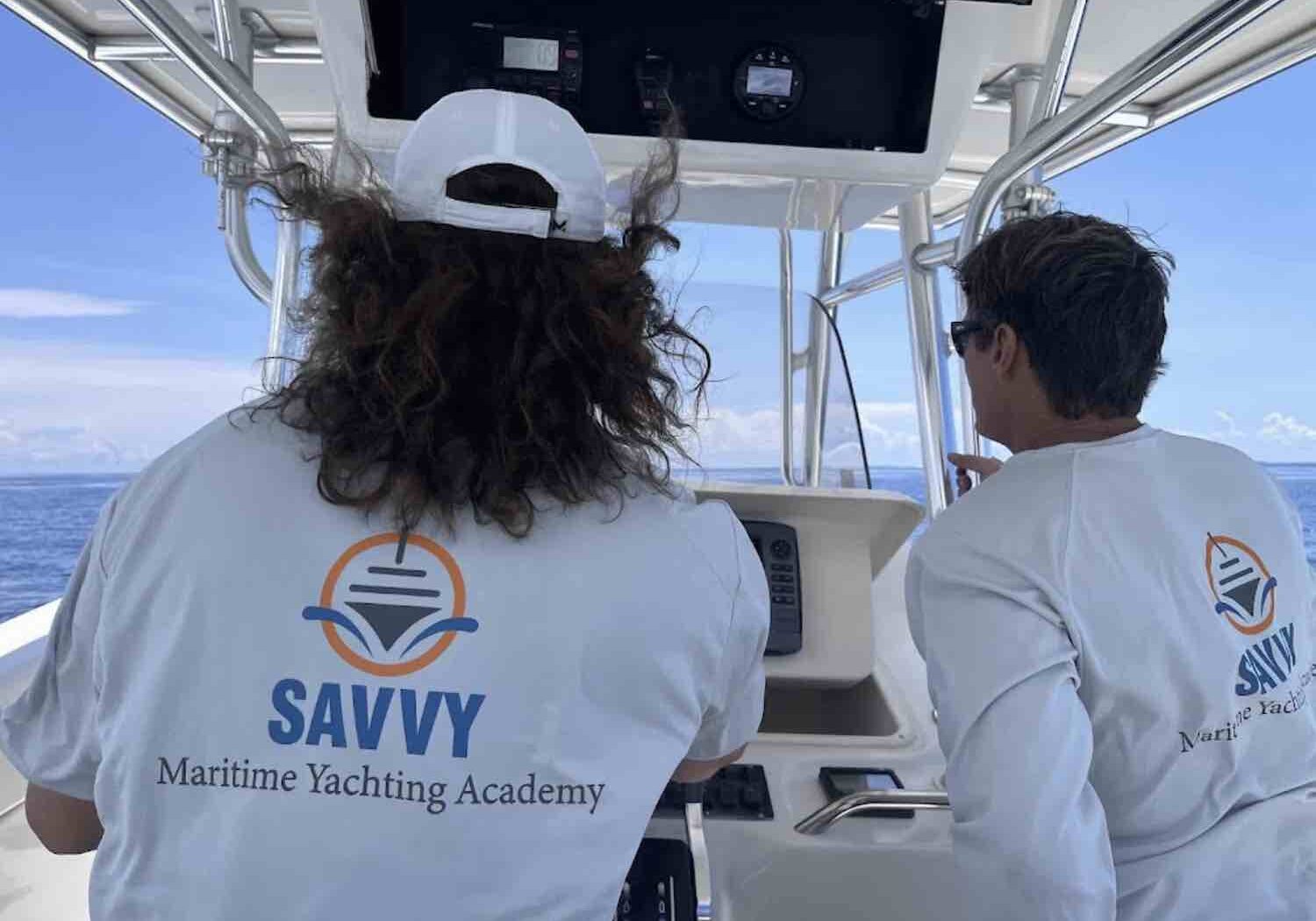
Savvy Deckhand Academy
(Fort Lauderdale) a Comprehensive 5-Week Deckhand Training Program with hands on practical skills emphsis
Deckhand Training Course Centres in The United Kingdom & Ireland
Book deckhand training at the best training centres in England & Ireland.
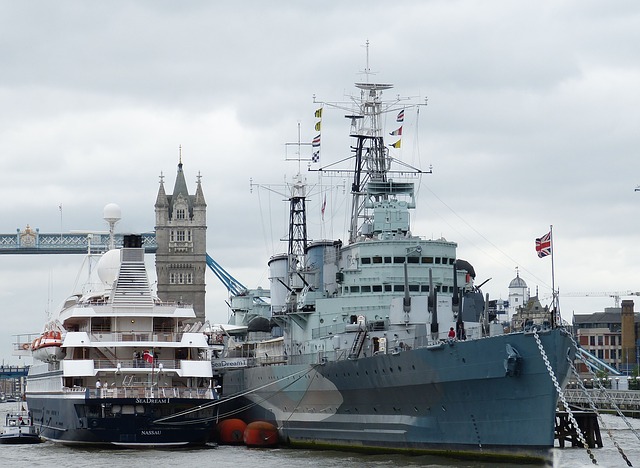
Deckhand Training Course Centres in Europe:
Deckhand training course centres in the asia pacific region.

Username or Email Address *
Remember me Lost your password?
Username or Email
Get New Password

What Size Yacht Requires a Captain’s License? Find Out Here

Have you ever dreamed of captaining your own yacht? Whether you’re a professional skipper or an amateur enthusiast, owning a yacht requires a unique set of skills and qualifications.
In this article, we’ll discuss what size yacht requires a captain’s license, the process for obtaining one, the benefits, and the penalties for operating a yacht without a license.
Read on to learn everything you need to know about captain’s licenses.
Table of Contents
Short Answer
In the United States, a captain’s license is required to operate any vessel of more than 25 gross tons, or any vessel that carries passengers for hire.
This includes larger yachts, as well as commercial vessels.
Depending on the size and the intended use, a captain may need to obtain a Master’s license or a higher level of certification.
Additionally, some states may require captains to have a specific license for vessels operating in their waters.
What is a Captain’s License?
A captain’s license is a qualification required in the United States for individuals wishing to operate a yacht larger than 25 gross tons.
This license is granted by the U.
Coast Guard and allows the holder to be in compliance with all federal laws and regulations governing the operation of large vessels.
This license is also necessary for commercial purposes, such as chartering a yacht for business purposes.
To obtain a captain’s license, the applicant must pass a series of tests administered by the U.
Coast Guard.
These tests include a physical examination, a written exam, and a practical exam.
Those who pass these tests are awarded a captain’s license and are legally authorized to safely and legally operate a yacht of any size.
The captain’s license is an important qualification for yacht owners, as it ensures that they are operating their vessels in compliance with all laws and regulations.
It also serves as a demonstration of the holder’s expertise in the field of boating and maritime operations.
It is important to note that the captain’s license is a prerequisite for many commercial activities involving the operation of a yacht, such as chartering and other business activities.
A captain’s license is an important qualification for any yacht owner, as it ensures that they are in compliance with all laws and regulations.
Those who wish to obtain a captain’s license should understand the steps necessary to do so, as well as the importance of the license for operating a yacht.

What is the Minimum Size of a Yacht Requiring a Captain’s License?

When it comes to the operation of a yacht, safety should always be paramount.
In the United States, if you wish to operate a yacht larger than 25 gross tons, you will be required to have a valid captain’s license from the U.
This license is necessary to be in compliance with the federal laws and regulations governing the operation of large vessels.
The license is also required if the yacht is to be utilized for commercial purposes.
So, what size yacht requires a captain’s license? Generally speaking, if the yacht is larger than 25 gross tons, then a captain’s license is required.
The exact size of the vessel will depend on several factors, such as the type of vessel, its gross tonnage, and its intended use.
Coast Guard has a detailed set of regulations that outlines the requirements for licensing, and it is recommended that prospective captains familiarize themselves with these regulations before attempting to operate a yacht.
Additionally, the size of the yacht’s crew can also be taken into consideration.
Generally speaking, if the vessel requires more than four crew members, then a captain’s license may be necessary.
Additionally, some states may have different requirements for licensing, so it is important to familiarize yourself with the laws and regulations for the state in which you will be operating the vessel.
A captain’s license is necessary to safely and legally operate a yacht of any size.
It is important to note that the captain’s license is not the same as a recreational boating license, and it is important to understand the difference between the two.
In conclusion, the minimum size of a yacht requiring a captain’s license is 25 gross tons.
It is important to familiarize yourself with the laws and regulations pertaining to the operation of large vessels and to obtain the necessary licensing before attempting to operate a yacht.
What is the Process for Obtaining a Captain’s License?
Obtaining a captain’s license is not a simple process.
It requires dedication, preparation and commitment.
In the United States, the U.
Coast Guard is responsible for issuing captain’s licenses.
To become licensed, an applicant must first pass a series of tests administered by the U.
This includes a physical examination, a written exam and a practical exam.
The physical examination is conducted to ensure that the applicant is healthy enough to operate a vessel.
This exam includes measuring the applicant’s vision, hearing, and physical strength.
The written exam tests the applicant’s knowledge of nautical rules, regulations, and practices.
This exam is designed to ensure the applicant has a comprehensive understanding of the procedures and laws related to operating a yacht.
The practical exam is designed to test the applicant’s ability to safely and effectively operate a vessel.
This exam is conducted on the water, and the applicant must demonstrate their ability to maneuver the vessel in a variety of conditions.
In addition to passing these tests, the applicant must also possess a valid state-issued driver’s license, and must be at least 18 years of age.
The applicant must also provide proof of U.
citizenship, or a valid alien resident card.
The process of obtaining a captain’s license can be long and challenging.
However, those who successfully obtain a license will be able to legally and safely operate any yacht larger than 25 gross tons.
What Are the Requirements for Obtaining a Captain’s License?

Obtaining a captain’s license is an important and mandatory step for anyone who wishes to operate a yacht larger than 25 gross tons in the United States.
This license is necessary in order to be in compliance with federal laws and regulations governing the operation of large vessels, as well as if the yacht is to be used for commercial purposes.
The process of obtaining a captain’s license requires applicants to pass a series of tests administered by the U.
Coast Guard, including a physical examination, a written exam, and a practical exam.
The physical examination is to ensure that the applicant is physically fit to be the captain of a large vessel.
This will involve a vision and hearing test, as well as a general physical exam to make sure the applicant is healthy enough to handle the duties of a captain.
The written exam is a series of multiple-choice questions that cover topics such as navigation, marine safety, and boating laws.
This exam is designed to test the applicant’s knowledge of the applicable laws, regulations, and procedures for operating a large vessel.
The practical exam is a hands-on examination of the applicant’s ability to safely and securely operate a vessel.
This will involve tasks such as docking and anchoring, emergency procedures, and navigational skills.
This exam is designed to ensure that the applicant is capable of safely navigating a yacht in any environment.
It is important to note that once a captain’s license is obtained, it is valid for five years.
After five years, the license must be renewed in order to remain valid.
Renewing a captain’s license requires the applicant to complete a recertification course, as well as pass an oral exam.
By obtaining a captain’s license, the applicant is demonstrating their commitment to safety, as well as their knowledge of the applicable laws and regulations governing the operation of large vessels.
This license is necessary to safely and legally operate a yacht of any size, and is a vital part of the process of becoming a responsible and capable captain.
What Are the Benefits of Having a Captain’s License?
When it comes to operating a yacht, having a valid captain’s license is essential.
Not only is it a requirement by the U.
Coast Guard, but it also provides a number of benefits to the captain and passengers.
By obtaining a captain’s license, the vessel operator will have the knowledge and skills necessary to safely and legally operate a vessel of any size.
Having a captain’s license demonstrates to other boat operators and passengers that the captain is knowledgeable and capable of safely navigating and operating the boat.
This can help to build trust and confidence among all those on board, and make for a more enjoyable experience.
The captain’s license also provides a sense of responsibility to the captain and passengers, as the license holder is held to a higher standard when it comes to safety and navigation.
A captain’s license can also be beneficial for those wishing to pursue commercial opportunities with their yacht.
Having a valid license can increase the chances of qualifying for charter boat services, as most companies require captains to have a valid license.
Additionally, having a captain’s license may make it easier to obtain insurance and other services, such as financing, for the yacht.
Finally, having a captain’s license can provide a sense of accomplishment to the individual who has earned it.
Captains who have earned their license have demonstrated their knowledge and skill in operating a vessel, which is something that should be celebrated.
In summary, having a captain’s license can provide a number of benefits to the captain and passengers of a yacht.
Coast Guard, but it also provides a sense of trust and responsibility, as well as commercial opportunities and a sense of accomplishment.
What Are the Penalties for Operating a Yacht Without a Captain’s License?

Operating a yacht without a valid captain’s license is a serious offense, and it can result in significant penalties.
Depending on the size of the yacht, the operator may be subject to civil and criminal penalties, including fines, imprisonment, and suspension or revocation of the vessel’s registration.
The penalties for operating a yacht without a captain’s license can vary greatly depending on the size and purpose of the vessel.
For example, operating a large, commercial vessel without a captain’s license can result in fines of up to $50,000, and the vessel may be confiscated and the operator may face up to 10 years in prison.
Operating a recreational vessel without a captain’s license can result in fines of up to $5,000 and the vessel may be seized and the operator may face up to six months in prison.
In addition to the legal penalties, operating a yacht without a captain’s license can also put people’s lives and property at risk.
A captain’s license demonstrates a working knowledge of the federal laws and regulations governing the operation of large vessels, and it also ensures that the operator is familiar with the safe and proper operation of their vessel.
Operating a yacht without a captain’s license is a serious offense and can result in significant penalties.
It is important to remember that a captain’s license is necessary to safely and legally operate a yacht of any size in the United States.
If you wish to operate a yacht larger than 25 gross tons, make sure to obtain a valid captain’s license from the U.
What Are the Different Types of Captain’s Licenses?
When it comes to operating a yacht larger than 25 gross tons, having a valid captain’s license is absolutely essential.
The United States Coast Guard (USCG) issues several different types of captain’s licenses depending on the size of the vessel and its intended purpose.
The most basic license is the Operator of Uninspected Passenger Vessel (OUPV) license, which allows a captain to operate a vessel of up to 6 passengers for hire within a certain geographic area.
This license is commonly referred to as a “six-pack license.
” Next up is the Master of Near Coastal Waters license, which allows a captain to operate a vessel of up to 100 gross tons within a certain geographic area.
This license is commonly referred to as a “100-ton license.
” If a captain wishes to operate a vessel larger than 100 gross tons, then he or she will need to obtain a Master of Oceans license.
This allows a captain to operate any size vessel, anywhere in the world.
Finally, there is the Master of Assistance Towing license, which allows a captain to operate a vessel of any size for towing purposes.
This license is commonly referred to as a “towing license.
” No matter which type of captain’s license you need, it is important to note that all of them require the applicant to pass a series of tests administered by the USCG, including a physical examination, a written exam, and a practical exam.
By obtaining any of the above captain’s licenses, you will be in compliance with the federal laws and regulations governing the operation of large vessels, as well as be able to safely and legally operate a yacht of any size.
Final Thoughts
It is important to understand the requirements for obtaining a captains license if you plan on operating a yacht over 25 gross tons.
Not only will it make your voyage safer and more enjoyable, but it is also a requirement for commercial operations.
With the right knowledge and preparation, obtaining a captains license can be an achievable goal.
To learn more about the process, requirements, and benefits of having a captains license, be sure to visit the U.
Coast Guard website.
James Frami
At the age of 15, he and four other friends from his neighborhood constructed their first boat. He has been sailing for almost 30 years and has a wealth of knowledge that he wants to share with others.
Recent Posts
When Was Banana Boat Song Released? (HISTORICAL INSIGHTS)
The "Banana Boat Song" was released in 1956 by Harry Belafonte. This calypso-style song, also known as "Day-O," became a huge hit and remains popular to this day for its catchy tune and upbeat...
How to Make Banana Boat Smoothie King? (DELICIOUS RECIPE REVEALED)
To make a Banana Boat Smoothie King smoothie at home, start by gathering the ingredients: a ripe banana, peanut butter, chocolate protein powder, almond milk, and ice. Blend the banana, a scoop of...
Crew Training Courses
We offer MCA and RYA courses in Antibes (France) and Palma (Spain), tailored to yacht crew at every stage of their yachting journey. Our comprehensive training encompasses all essential modules to support seafarers in achieving the highest standards of professionalism within the yachting industry.


Yacht Crew Agency / Role / Junior Yacht Captain
Junior Yacht Captain

A Junior Yacht Captain should have an up-to-date permit/license and all certificates necessary for the position. He/she may have limited experience as a captain but should have knowledge/skills of yacht management, safety and financial administration.
The position requires at least three years of experience in yachting and certain engineering knowledge/mechanical aptitude.
Job responsibilities of a Yacht Junior Captain
- Achievement of the owner’s objectives
- Crew hiring and dismissal
- Ensuring safety for passengers, crew, environment and vessel
- Management of personnel aboard the yacht
- Legal and regulatory compliance
- Ensuring yacht navigation
- Management of accounting and monitoring of accounts
Skills required from a Yacht Junior Captain
- Calm and charismatic personality
- Superior leadership, communication, management and diplomacy skills
- Excellent knowledge of the vessel and navigation skills
- Excellent knowledge and hands-on experience in ISM and ISPS
- Knowledge/skills in maintenance, engineering and technical experience of troubleshooting
- Ability to give instructions in emergencies
- Organised and methodical personality
You can register your profile directly online.
Click the button below to start the process. Our team will have a look at your profile and come back to you for an interview if you are selected.
Are you looking to hire a Junior Yacht Captain ?
Contact us and dear, please fill the form and our team will contact you within 24 hours.
By clicking “Accept All Cookies”, you agree to the storing of cookies on your device to enhance site navigation, analyze site usage, and assist in our marketing efforts.
Hire and Find Experienced Yacht Crew staff
This form is for employers who are looking to hire crew only.
You want to talk to a recruiter to help you personalise your recruitment. Choose a date from the list of available appointments and let us guide you.
Click one of our contacts below to chat on WhatsApp

Social Chat is free, download and try it now here!
- Show original
Google translate
Crewing agents.
In countries where the Maritime Labour Convention, 2006 has been ratified , crewing agencies offering recruitment services MUST NOT charge you for finding you work.

In countries where the Maritime Labour Convention, 2006 has been ratified , crewing agencies (sometimes named manning agencies) offering recruitment services MUST NOT charge you for finding you work.
The only costs that can be charged to you are those:
- for obtaining your national statutory medical certificate
- your national seafarers’ book
- your passport or similar personal travel documents
The cost of visas MUST be paid for by the shipowner.
Additionally, all private crewing agencies must be regulated and provide an efficient, adequate, and accountable system that protects and promotes your employment rights. The creation of blacklists that could prevent qualified seafarers from finding work is forbidden .
Even if your agency is in a country that has not ratified the MLC, shipowners with ships registered in the flags of countries that have ratified must still use agencies that comply with these minimum requirements.
Depending on which country you come from, your union may offer recruitment services under the terms of a collective bargaining agreement. The Flag State must make sure that if seafarers are recruited from a crewing/manning agency in a country that has not ratified the Convention, the shipowner recruiting them must ensure that the agency meets with the MLC’s standards.
Where a crewing/manning agency is publicly operated, it must also be run in an orderly way that promotes your employment rights.
There must be a process in place to enable you to make a complaint if a crewing/manning agency is not run properly and is in breach of the requirements of this convention. Depending on the situation you may need to complain to the authorities of your own country (for example for Filipino seafarers this could be the POEA – Philippines Overseas Employment Agency), those of the Flag State or those of a Port State. You can also contact your union or the ITF for advice.
How to tell if a private crewing/manning agent or recruitment company is reliable?
- Keep an up-to-date register of all their seafarer placements
- Keep up-to-date lists of ships and company contact details where their seafarers are placed
- Inform you of your rights and duties under an employment agreement and give you enough time to examine it before you sign up
- Give you a copy of the employment agreement
- Make sure their agreements comply with applicable national laws and CBAs
- Check your qualifications for the job
- Make sure that the shipowners or companies they work with are financially secure so that you do not get stranded in a foreign port
- Have an effective complaints procedure in place
- Have an insurance system in place in case they need to compensate you for any failure to meet their obligations under the recruitment and placement service, or if the shipowner fails to meet their obligations under the SEA
As a matter of good practice they should also:
- Employ staff with relevant knowledge of the maritime industry
- Respect your right to privacy and the need to protect confidentiality
- Ensure that they can respond promptly and sympathetically to requests for information and advice from your family while you’re at sea – at no cost to you or your family
- Keep up-to-date lists of contact details in case of emergencies
- Inform you of any relevant shipping company policies, eg. dry ship policies where no alcohol may be consumed onboard
- Check that the labour conditions on ships where they supply crew comply with all applicable CBAs, laws and regulations
If you have any questions or concerns regarding a job or job offer, you can contact us via email at [email protected]

Household staff agency / Hire private staff / Yacht crew
Hire yacht crew
Yacht and sail boat crews are teams of highly trained and experienced professionals providing an on board care and hospitality service. They are expected to work together towards a common goal of providing the best bespoke service for their client, their client’s family, guests and associates.
Every crew member plays a key role in providing a premium on board service. Generally, a strict hierarchy ensures that each individual is able to perform his or her tasks to the necessary level of excellence, to meet or even exceed their client’s high expectations.
On board crews are divided into two teams: one team dedicated to cabin service, and the second team focused on vessel maintenance and navigation. Mega-yachts and super-yachts may necessitate larger crews of up to 20 people.
Learn more about us and our recruitment process with our online brochure
Key numbers
Morgan & mallet international.
The leading international household staffing agency
We recruit candidates with a minimum of 3 to 5 years experience in the household staffing industry
We verify the candidate's references each time, we contact every previous employer, we can advise you regarding the work contract and regulations, the recruiter organizes a deep interview with all candidates to check their experience, we check their criminal record for you and all official document for your security.
Morgan & Mallet International is the leading global agency for luxury domestic and private staff recruitment since 2015.
Our primary goal is the client’s peace of mind. We specialize in placing domestic and private staff both locally and internationally to cater to our clients’ personal needs. We assist our clients in recruiting household and domestic staff for a variety of settings, including private villas, apartments, palaces, royal residences, chalets, private islands, family offices, yachts, private planes, and diplomatic residences.
Our experts recruit and place highly experienced candidates for exclusive clients, including top business professionals, HNW & UHNW families or individuals, royal families, celebrities, VIPs, VVIPs, political figures, and world-renowned artists. We also provide services to embassies, governmental organizations, diplomats and their families, and international private businesses for managing their extensive properties.
As a recruitment and headhunting agency, we specialize in sourcing private, household, and domestic staff in the USA, UK, Europe, and the Middle East, for both temporary and permanent positions.
We are a global company with offices in key cities such as London, Los Angeles, New-York, Dubai, Paris, Valbonne/Monaco, and Geneva.
About Morgan & Mallet International Household staff recruitment agency
The yacht crew roles we hire and recruit.
Discover the main yacht crew roles we recruit and place for our clients.
- Yacht captain
- Yacht stewardess
What are the roles and responsibilities of Yacht or Sail Boat Crew ?
The yacht or sail boat captain.
The captain is responsible for operating the vessel and maintaining security. This includes managing the crew, equipment and materials, relations with the employer, their family and guests. This role is at the top of the hierarchy with every crew member ultimately answerable to the captain.
The yacht or sail boat engineer
The engineer is responsible for technical maintenance and operations of the vessel. He or she reports directly to the captain and manages the engineering team (electricians, IT specialists, technical assistants etc.).
The yacht or sail boat first officer / chief mate
Mega-yachts, super-yachts and larger sail boats may necessitate a second in command to the captain, or even a third (a second officer). These act as direct subordinates, many of the captain’s responsibilities may be delegated to them and they are responsible for ensuring that his or her orders are carried out.
The yacht or sail boat head steward / stewardess
The head steward(ess) is responsible for managing and overseeing cabin crew operations on board, inclusive of stewards, cleaning and kitchen staff. They are expected to handle all client requests relating to care and hospitality services, to organise calendars, meetings and cabin crew recruitment.
The yacht or sail boat chef
Every private yacht or sail boat owner and its cabin crew take great pride in the available on board cuisine. The chef is a crucial member of the cabin crew and contributes to creating a luxurious, five-star service and relaxing atmosphere. They are responsible for sourcing supplies and regulating stocks, ensuring that only the freshest, best quality produce is used and is available at all times. On board chefs are also generally required to cook for the engineering and cabin crew.
The yacht or sail boat sous-chef
On larger vessels, a sous-chef is often employed to works alongside the head chef, who is often Michelin-starred. They are required to assist with cooking and cleaning duties within the kitchen.
The yacht or sail boat skipper / sailor
The skipper or sailor is responsible for the maintenance and upkeep of the exterior of the yacht and assist the captain in its operation. During dockings, the skipper helps guide the captain, secures the vessel and ensures it is sufficiently protected from potential damages. Larger vessels may require up to eight skippers.
What accommodation should be expected for a Yacht / Sail Boat crew ?
When at sea, accommodation must be provided aboard the vessel. On land, the crew is generally expected to arrange private accommodation. Crew members may sometimes be requested to stay on board in the absence of the employer to ensure the vessel is secure and well maintained.
All our yacht and sail boat crews are required to:
- Hold clean criminal records in both their country of employment and country of origin
- Present all certificates and qualifications from training centres and/or schools they attended
- Successfully pass two interview stages
- Provide at least three positive references from previous employers
- Complete professional dossiers containing: CV, cover letter, proof of identity (photocopy or scan), proof of address, proof of the right to work in the country of employment (if applicable), driving license and pay slips from previous professional placements. Candidates should be aware that other documentation may also be required.
Morgan & Mallet International places and recruits private yacht and sail boat crews for temporary, seasonal, or permanent contracts. Our recruitment consultants are always available to answer your questions.
Morgan & Mallet in Medias

Our Recruitment Process
By clicking “Accept All Cookies”, you agree to the storing of cookies on your device to enhance site navigation, analyze site usage, and assist in our marketing efforts.
Hire and Find Experienced Household and Private Staff
This form is for employers who are looking to hire staff only.
Fill out the form below, and we will be in touch shortly.
You want to talk to a recruiter to help you personalise your recruitment. Choose a date from the list of available appointments and let us guide you.
Click one of our contacts below to chat on WhatsApp

Social Chat is free, download and try it now here!
Insert/edit link
Enter the destination URL
Or link to existing content
- Today's news
- Reviews and deals
- Climate change
- 2024 election
- Newsletters
- Fall allergies
- Health news
- Mental health
- Sexual health
- Family health
- So mini ways
- Unapologetically
- Buying guides
Entertainment
- How to Watch
- My watchlist
- Stock market
- Biden economy
- Personal finance
- Stocks: most active
- Stocks: gainers
- Stocks: losers
- Trending tickers
- World indices
- US Treasury bonds
- Top mutual funds
- Highest open interest
- Highest implied volatility
- Currency converter
- Basic materials
- Communication services
- Consumer cyclical
- Consumer defensive
- Financial services
- Industrials
- Real estate
- Mutual funds
- Credit cards
- Balance transfer cards
- Cash back cards
- Rewards cards
- Travel cards
- Online checking
- High-yield savings
- Money market
- Home equity loan
- Personal loans
- Student loans
- Options pit
- Fantasy football
- Pro Pick 'Em
- College Pick 'Em
- Fantasy baseball
- Fantasy hockey
- Fantasy basketball
- Download the app
- Daily fantasy
- Scores and schedules
- GameChannel
- World Baseball Classic
- Premier League
- CONCACAF League
- Champions League
- Motorsports
- Horse racing
New on Yahoo
- Privacy Dashboard
Below Deck Sailing Yacht Season 5 Trailer Teases New Dynamics for Captain Glenn
It's time to sail-ebrate, because Below Deck Sailing Yacht returns for Season 5 this October.
The announcement came on Monday, Sept. 16, as did the release of the official trailer (which you can check out above), the crew line-up, and more details.
When does Season 5 of Below Deck Sailing Yacht premiere?
Below Deck Sailing Yacht Season 5 premieres on Monday, Oct. 7 at 9 p.m. ET/PT on Bravo. Episodes will be available to stream next day on Peacock.
More from Bravo:
Here's What Daisy Kelliher Has Been Up to Since Season 4 of Below Deck Sailing Yacht
Captain Glenn Shephard Shares a Surprising Throwback Photo (Hint: He "Had More Hair Back Then")
Daisy Kelliher Reveals Her Sister Suffered a Serious Accident: "Quite a Miracle She's Alive"
Who is the crew for Below Deck Sailing Yacht Season 5?
Captain Glenn Shephard is back aboard Parsifal III with returning department heads Chief Stew Daisy Kelliher and First Mate Gary King . New crew members include Chef Cloyce Martin , Chief Engineer Davide Morosi , stews Diana Cruz and Danni Warren , and deckhands Keith Allen and Emma Crouch .
Where does Season 5 of Below Deck Sailing Yacht take place?
Captain Glenn and his expert crew are setting sail in Ibiza for Season 5. A press release describes the locale as "the luxury party capital of the world" known for "sunny day parties and a crystal-clear coast."
What can fans expect on Season 5 of Below Deck Sailing Yacht ?
The crew aboard Parsifal III will have to "navigate" everything from "competitive co-workers" to "tense personal dynamics, all while trying to raise the bar every charter," according to a press release.
What's more, this season "Daisy is ready to take the reins back in the interior department with a new sense of energy and determination," the release continues. "However, plans for a stress-free charter season are threatened when her stews question her leadership."
"On deck, Gary attempts to keep his team motivated as one crew member struggles to learn the ropes. In the galley, Chef Cloyce charms the crew and guests but at only 22, he may be too inexperienced to meet the demands of the high-maintenance charter guests," the press release concludes.
Related: The Below Deck Captains: A Complete List
The trailer for Below Deck Sailing Yacht Season 5 teases even more of what's to come after kicking off with a strong declaration from Daisy. As she says while narrating the preview, "Going into this season, I got rid of some dead weight. The breakup did a number on me last year. I felt very broken. But now I'm coming back in, more focused, full of energy. I'm f-cking good at my job and I'm taking back the reins."
Watch the full trailer at the top of this post.
Until Season 5 premieres in October, catch up with Below Deck Sailing Yacht on Peacock and the Bravo app.
Recommended Stories
Amazon prime big deal days dates announced: the fall prime day sale returns on october 8 and 9.
Amazon Prime Big Deal Days returns this October; here's everything we know about the sale event so far.
Amazon will host its Prime Big Deals Day sales event on October 8 and 9
Amazon said today that it will host its Prime Day-like sales event, "Prime Big Deals Day," on October 8-9. For the last two years, the ecommerce company has scheduled its fall event in October and has continued that tradition this year. Amazon will hold Big Deals Day in Japan later in October.
Amazon Prime Big Deal Days 2024 dates announced: Fall Prime Day is back on October 8 and 9
The two-day savings spectacular is set for Tuesday, October 8 and Wednesday, October 9 — read on for all the details.
The Gates Foundation's new post-COVID target: global health spending in 'stagnation'
The Bill and Melinda Gates Foundation's annual Goalkeepers report highlights the need to address childhood malnutrition against a backdrop of stagnating global public health spending.
2024 Chase Freedom bonus categories: Get 5% back on PayPal and pet purchases this quarter
Each quarter, Chase Freedom Flex cardholders get access to new 5% bonus categories. These are the current options and how you can start earning now.
Eagles star WR A.J. Brown expects to miss 'a couple weeks' with hamstring injury
A.J. Brown was downgraded to out for Monday night's game against the Atlanta Falcons.
Slack is turning into an AI agent hub. Should it?
The head of Slack, Denise Dresser, tells TechCrunch she is shifting the business chat platform into a "work operating system," specifically by making Slack a hub for AI applications from Salesforce, Adobe, and Anthropic. The company's CEO sees Slack as more than a place to chat with your coworkers, but do users want that? Slack announced several new features on Monday for a pricier tier of the messaging platform: Slack AI.
Intel moves to spin out foundry business, inks AI chip deal with AWS
Intel has announced a key customer win and changes to its foundry business as the beleaguered chipmaker looks to execute a turnaround. Intel is taking steps to transition its chip foundry division, Intel Foundry, to an independent subsidiary, Intel CEO Patrick Gelsinger said in a blog post. Intel Foundry’s leadership isn’t changing, and the subsidiary will remain inside Intel.
North London derby reaction, Wiso Vasquez & Amelia Lopez discuss MLS & is there a new face of the NWSL?
Christian and Alexis react to Arsenal’s big win in the North London Derby. Then Christian and Alexis welcome on Wiso Vasquez and Amelia Lopez to chat MLS. Later, Christian and Alexis talk Trinity Rodman’s case to be the new face of the NWSL.
Wisconsin QB Tyler Van Dyke ruled out for season with ACL injury after leaving loss to Alabama early
Tyler Van Dyke went down on the first drive of Wisconsin's loss to Alabama on Saturday afternoon.

Create a free profile to get unlimited access to exclusive videos, sweepstakes, and more!
Meet the Below Deck Sailing Yacht Season 5 Crew Taking on Ibiza (PHOTOS)
See which yachties will join Captain Glenn Shephard aboard Parsifal III for Season 5 of Below Deck Sailing Yacht .

Captain Glenn Shephard and his crew are headed to Ibiza for Season 5 of Below Deck Sailing Yacht this October.
How to Watch
Watch Below Deck Sailing Yacht on Bravo on Monday, October 7 at 9/8c and next day on Peacock . Catch up on the Bravo app .
The experienced leader will be joined aboard Parsifal III by returning department heads Chief Stew Daisy Kelliher and First Mate Gary King , as well as new crew members Chef Cloyce Martin , Chief Engineer Davide Morosi , stews Diana Cruz and Danni Warren , and deckhands Keith Allen and Emma Crouch .
Together, the Below Deck Sailing Yacht Season 5 crew will "navigate" everything from "competitive co-workers" to "tense personal dynamics, all while trying to raise the bar every charter," according to a press release.
Get to know the Parsifal III crew below .
Captain Glenn Shephard

For the fifth season in a row, Captain Glenn is leading the charge aboard Parsifal III .
Chief Stew Daisy Kelliher

Daisy is returning as chief stew for her third season aboard Parsifal III.
More from Bravo:
Here's What Daisy Kelliher Has Been Up to Since Season 4 of Below Deck Sailing Yacht
Captain Glenn Shephard Shares a Surprising Throwback Photo (Hint: He "Had More Hair Back Then")
Daisy Kelliher Reveals Her Sister Suffered a Serious Accident: "Quite a Miracle She's Alive"
First Mate Gary King

For the fourth season in a row, Gary will serve as Captain Glenn's First Mate.
Chef Cloyce Martin

Cloyce Martin joins the Season 5 crew as Parsifal III's new chef.
Chief Engineer Davide Morosi

Davide Morosi will play a key role aboard Parsifal III as the chief engineer.
Stew Diana Cruz

Serving on the interior team under Daisy will be new stew Diana Cruz.
RELATED : The Below Deck Captains: A Complete List
Danni Warren

Danni Warren joins the Season 5 crew as a stew.
Deckhand Keith Allen

New deckhand Keith Allen will work under Gary's leadership.
Deckhand Emma Crouch

New crew member Emma Crouch joins Season 5 as a deckhand.
When does Season 5 of Below Deck Sailing Yacht premiere?
Below Deck Sailing Yacht Season 5 premieres on Monday, Oct. 7 at 9 p.m. ET/PT on Bravo. Episodes will be available to stream next day on Peacock.
Until Season 5 premieres in October, catch up with Below Deck Sailing Yacht on Peacock and the Bravo app.
- Daisy Kelliher
- Glenn Shephard
Below Deck Sailing Yacht
- Cast And Show News
Related Stories

Below Deck Sailing Yacht Season 5 Trailer, Cast, Premiere Date

Cameras Are Rolling on RHOM Season 7 (PIC)

Dr. Nicole Martin "Stepping Back" from RHOM to Put "Family First"

Who Is RHOP Season 9's New Housewife, Stacey Rusch?

Meet the RHOP Season 9 Cast

Who Is RHOP Season 9 Newbie Keiarna Stewart?

RHOP Season 9 Trailer Teases Fourth-Wall Breaking Moments

The Premiere Dates for Bravo's Fall 2024 Shows Are Here

Where the Altmans, Flagg, & Tracy Stand After MDLLA Season 15

RHOSLC Season 5 Exclusive Photos Tease Shocking Alliances

When Is The RHODubai Season 2 Reunion on Bravo?

Is Watch What Happens Live on Tonight? Find Out Inside
Latest videos.

How Michelle Collins Handles Hecklers

Michelle Collins Is Ready to See Dorit Kemsley Fire on All Cylinders on RHOBH

Michelle Collins Says Joe Bradley Has “Big Deckhand Energy”

Carrie O’Neill Thinks Elena Dubaich Should Work on Her Ego

Nathan Gallagher Tells Aesha Scott What's Being Said Behind Her Back

Start Watching the Below Deck Mediterranean Season 9 Finale Now

Captain Sandy Yawn on What Drew Her to Her Wife, Leah

Bri Muller on Living With Ellie Dubaich: "We Thrived in the Mess"

Kate Chastain Praises Aesha Scott's Honesty with Guests

Ellie Dubaich Reacts to Aesha's Stew Meeting: "It Was Demoralizing"

Bri Muller on Why She Felt "Awkward With the Guests" on the Excursion

Ellie Dubaich Admits Her Mouth Was "Unhinged" Toward the End of the Season

Your First Look at Below Deck Sailing Yacht Season 5

Chase Lemacks Says Goodbye to the Below Deck Sailing Yacht Crew

Gary King to Chase Lemacks: "I've Never Worked with a Deckhand Like You"
Recommended for you.

Bravo Fan Fest Is Heading to Miami in November

Where Did the MDLLA Cast Go to College?

The Best Real Housewives Quotes: "Name 'Em" & More
- Television News
- Gaming News
- About Hollywood Outbreak
‘Bridgerton’ Season 4 Returns With New Cast & Exciting Plot
Halle berry thought ‘never let go’ was scary good, ‘transformers one’ gave fan keegan-michael key exactly what he wanted, ‘alien: romulus’ star isabela merced celebrates the power of teamwork, bobby moynihan’s ‘lego star wars’ dream comes true with ‘rebuild the galaxy’.

‘Below Deck Sailing Yacht’ Season 5: Partying In Ibiza, Crew Drama On High Seas

Bravo’s hit reality show Below Deck Sailing Yacht is back for its fifth season, and this time, the drama is sailing to the party island of Ibiza. Premiering on Monday, October 7th at 9 p.m. ET/PT, Captain Glenn and his crew are ready to navigate the choppy waters of both luxury charters and interpersonal conflicts. This season, expect a wild ride as the crew navigates the party scene of Ibiza, catering to demanding charter guests against a backdrop of stunning beaches and vibrant nightlife. Chief Stew Daisy seeks redemption, determined to prove her leadership amidst potential crew conflicts . And of course, get ready for boatmances and blowups as sparks fly amidst the high-pressure environment.
Below deck sailing yacht season 5 promises sun-soaked adventures, stormy relationships, and unforgettable moments. don’t miss the premiere on october 7th, and be sure to catch new episodes streaming the next day on peacock. get ready for a wild ride in ibiza, related articles, ‘bridgerton’ season 4 returns with new cast..., bobby moynihan’s ‘lego star wars’ dream comes..., daryl & carol return: new teaser &..., kathryn hahn’s spellbinding return: thrilled to revisit..., share article, latest articles, new trailers, daryl & carol return: new teaser & key art for ‘the walking dead: daryl dixon – the book of carol’ season 2, gear up for ‘tracker’ season 2: first look at the official trailer, prepare for the twilight’: zack snyder’s norse mythology epic storms netflix, fx’s ‘social studies’ examines the complexities of growing up online, ‘monsters’: the lyle & erik menendez story – unraveling a dark family legacy.
Follow Hollywood Outbreak on Mastodon
Copyright © Hollywood Outbreak

COMMENTS
Yacht Crew Licenses & Certifications: Q & A. Captain Mark Fry, of International Yacht Training, answers your questions. Q: How does one substantiate the requirement of actual cruising time as a qualification for the "6 Pak" license? I have been boating for at least the last 15 years and have substantial hours, however I never maintained a log.
Seven Seas Preparatory Academy provides STCW Certification and training for the Yachting, Cruise Ship, and US Merchant Marine. Courses include STCW Basic Training Blended (2 days), STCW online courses, Deckhand training, Yacht Stewardess training, and Interior crew training. We provide STCW Basic Training required for all crew, completed online ...
Working hours for yacht crew members can vary depending on the yacht's schedule and guest requirements. Crew members may work long hours, often 12-16 hours per day, during busy charter seasons. However, there may also be periods of downtime between charters. Living conditions on a yacht can be tight, with shared cabins and limited personal space.
May 15, 2021. Owning a yacht embodies luxury, freedom, and adventure on the open waters. However, amid the allure of yacht ownership, there's a critical aspect often overlooked—the necessity of possessing a valid yacht license. This article delves into why having a license to drive a yacht is indispensable for aspiring owners.
Go to a superyacht marina. 1. Have the right attitude. Along with gaining the correct qualifications to prove your competence, to become a Yachtie, you must have certain characteristics to thrive in this industry. Yachties have to be well presented, articulate, know how to take orders, and be able to work hard, all with a smile and enthusiasm.
Qualifications required to work on board a yacht. All crew, regardless of their position on board, need to have completed the STCW Basic Safety Training along with obtaining a recognised Seafarers medical certificate, the most popular being the ENG1 which is issued by an MCA (Maritime and Coastguard Agency) professional medic.
Online courses followed by 2 days in practical training (Fire Fighting, PST and First Aid/CPR). STCW Basic Training is the required safety course for yacht crew. Our exclusive STCW Basic Training Blended Course comprises of 4 modules taken online followed by 2 Days of practical training. (Equivalent to the 5 day classroom/practical course).
There are currently over 15,000 yachts in the world large enough to require professional, qualified yacht crew and as a result this industry is growing rapidly each year. A career in yachting can be rewarding, exciting and a wonderful opportunity to travel the world and explore new horizons! Wherever there is water, you have the potential to go.
Our Crew Training Centres. Bluewater is the longest established dedicated yacht crew training provider. As superyachts have grown larger in length, more technical and more complex to run, the demand for quality yacht crew training courses has increased year after year. As superyacht cruising grounds have expanded, so have we.
Here is what you'll need to get your third mate license. Complete Sea Service Requirements for Third Mate License. You need 1080 days of sea time. You can count any sea service from age 16 onward, but 90 of the 1080 days must be within the last 3 years. Remember these other requirements, too: Overtime doesn't count toward days of sea service.
Yacht crew training courses offered by Professional Yacht Training - PYTUSA. Classes you need to work on a yacht. Fort Lauderdale, FL. Professional Yacht Crew Training for Careers in Yachting Schedules - All Courses Prices - All Courses Register For Class Today What Is STCW Training & STCW 10 Basic Safety? The International Convention of ...
IYT operates more boating courses with more government approvals through more schools, in more countries and in more languages than any other boating organization in the world. We are proudly ISO 9001:2015 approved. International Yacht Training Worldwide is the global leader in International Certificate of Competence, Superyacht Crew training ...
The most popular and widely recognised of the available seafarer medical certificates is the ENG1. The ENG1 Medical is a basic medical certificate and is as essential as your STCW'10. It is a mandatory requirement to prove you are fit to work as a yacht crew member at sea. Only MCA-approved doctors can perform an ENG 1 medical exam.
Due to the fact that charter guests and yacht crew require a PWC license in order to operate a Jet Ski in the Med, the demand for crew with the PWC instructor certification is high. Crew with the instructor license (working on a correctly registered vessel) are able to certify guests with an RYA Introduction to PWC Safety Course, allowing them ...
A captain's license is necessary to safely and legally operate a yacht of any size. It is important to note that the captain's license is not the same as a recreational boating license, and it is important to understand the difference between the two. In conclusion, the minimum size of a yacht requiring a captain's license is 25 gross tons.
We offer MCA and RYA courses in Antibes (France) and Palma (Spain), tailored to yacht crew at every stage of their yachting journey. Our comprehensive training encompasses all essential modules to support seafarers in achieving the highest standards of professionalism within the yachting industry. View full Price List Book Courses.
A Junior Yacht Captain should have an up-to-date permit/license and all certificates necessary for the position. He/she may have limited experience as a captain but should have knowledge/skills of yacht management, safety and financial administration.
The only costs that can be charged to you are those: for obtaining your national statutory medical certificate. your national seafarers' book. your passport or similar personal travel documents. The cost of visas MUST be paid for by the shipowner. Additionally, all private crewing agencies must be regulated and provide an efficient, adequate ...
Together, the Below Deck Sailing Yacht Season 5 crew will "navigate" everything from "competitive co-workers" to "tense personal dynamics, all while trying to raise the bar every charter ...
Every private yacht or sail boat owner and its cabin crew take great pride in the available on board cuisine. The chef is a crucial member of the cabin crew and contributes to creating a luxurious, five-star service and relaxing atmosphere. ... proof of the right to work in the country of employment (if applicable), driving license and pay ...
Season 5 Preview: Captain Glenn Shephard and his crew are taking over Ibiza, where there are plenty of boatmances, competitive co-workers and tense personal dynamics waiting.
Where does Season 5 of Below Deck Sailing Yacht take place?. Captain Glenn and his expert crew are setting sail in Ibiza for Season 5. A press release describes the locale as "the luxury party ...
Together, the Below Deck Sailing Yacht Season 5 crew will "navigate" everything from "competitive co-workers" to "tense personal dynamics, all while trying to raise the bar every charter ...
Below Deck Sailing Yacht Season 5 sets sail for the party island of Ibiza, premiering October 7th! Expect wild nights, demanding charter guests, crew drama, and boatmances as Captain Glenn and his ...
A Teralani Sunset Sail boat ran aground near Whalers Village on Maui Tuesday night. Four people were hospitalized after the incident, which occurred around 7 p.m.
Strategic Marine, in collaboration with Centus Marine, is proud to unveil the introduction of Malaysia's first hybrid Fast Crew Boat (FCB). This innovative vessel is equipped with cutting-edge ...